
—– Charging Head Network Disassembly Report No. 2102 —–
Introduction
TWS earbuds have rapidly developed over the years, with continuous updates in wireless transmission technology, surpassing traditional wired headphones from multiple perspectives. They are very convenient to use, supporting functions such as opening the case to connect and automatic playback when wearing the earbuds, which traditional wired headphones do not possess, thus becoming a favorite among mainstream consumers.
Skullcandy is considered a fashionable brand among headphone brands and has launched several true wireless earbuds. The model we are disassembling today features a fresh green color scheme, which is quite innovative compared to the traditional black or white colors of headphones. Let’s take a look at the internal components and the solutions used by various manufacturers.
Unboxing Skullcandy TWS Earbuds

The front design of the packaging box features the Skullcandy brand, product name, appearance, and selling points.
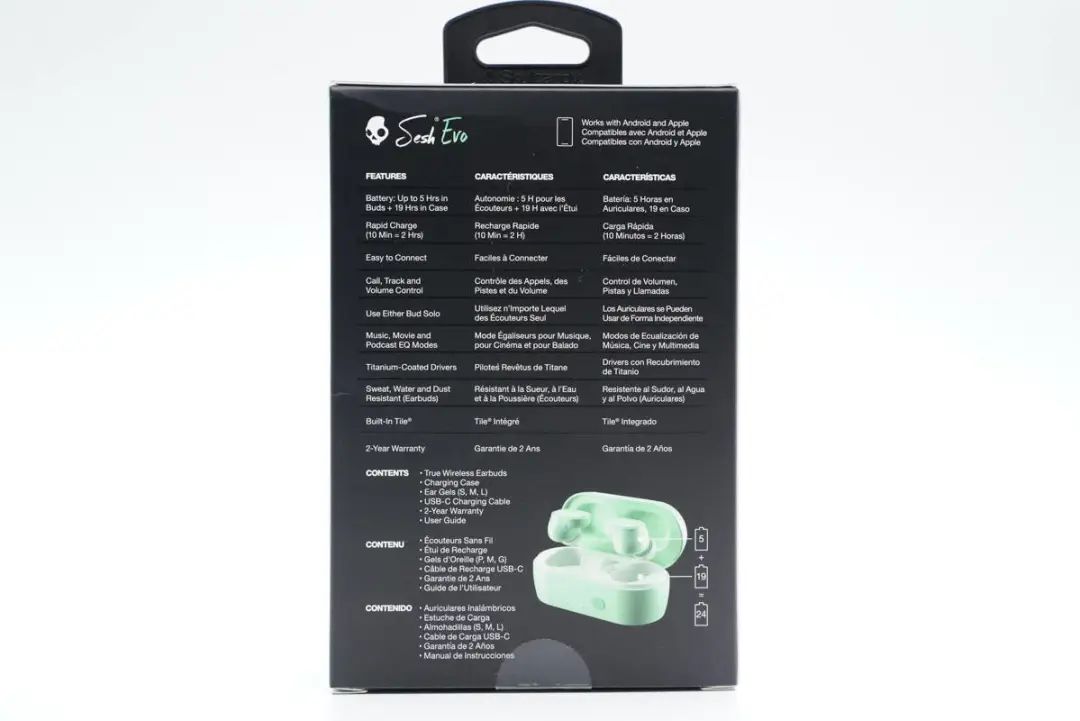
The back of the packaging box introduces the product’s special features, with accessory information at the bottom.

The packaging includes earbuds, a charging case, a charging cable, additional ear tips, and a user manual.
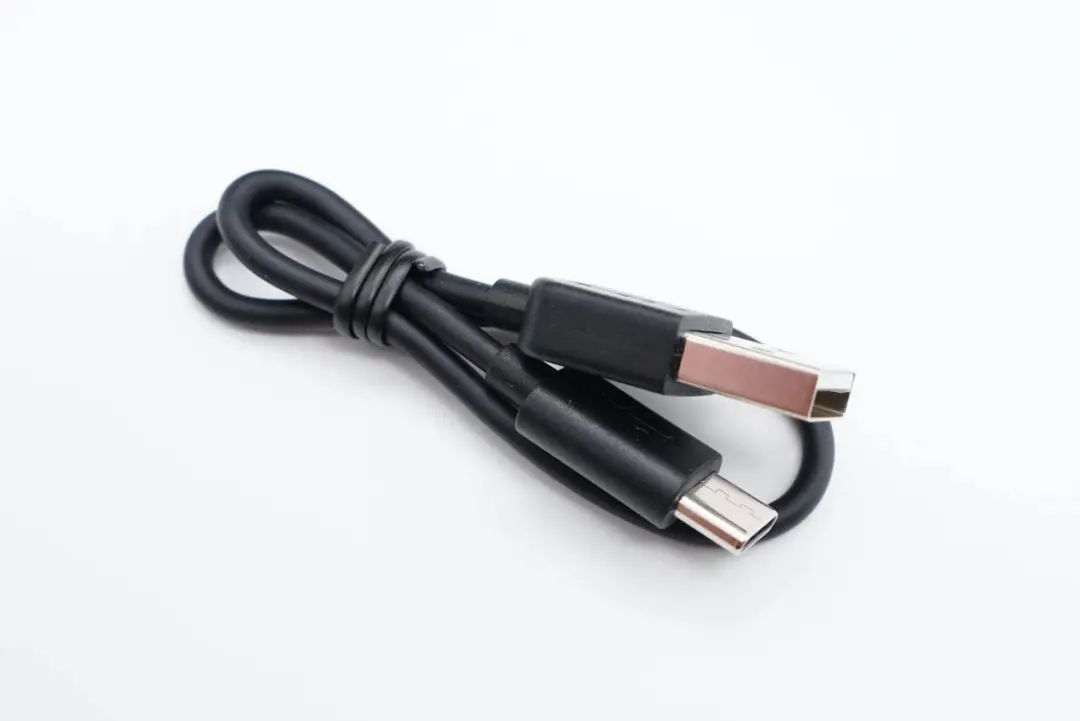
The included data cable is a short A to C type, convenient for carrying and charging.

Two pairs of replaceable white silicone ear tips are included, with the medium size pre-installed to fit different ear canal sizes.

The Skullcandy earbuds and charging case both feature a green color scheme, giving them a fresh look.

There is an indicator light on the side of the earbuds, which lights up blue during normal use.

The front shell is designed with the Skullcandy logo.

The pogo pin used for charging the earbuds is located inside the charging case.

The slot design includes an ‘R’ marking for user identification.
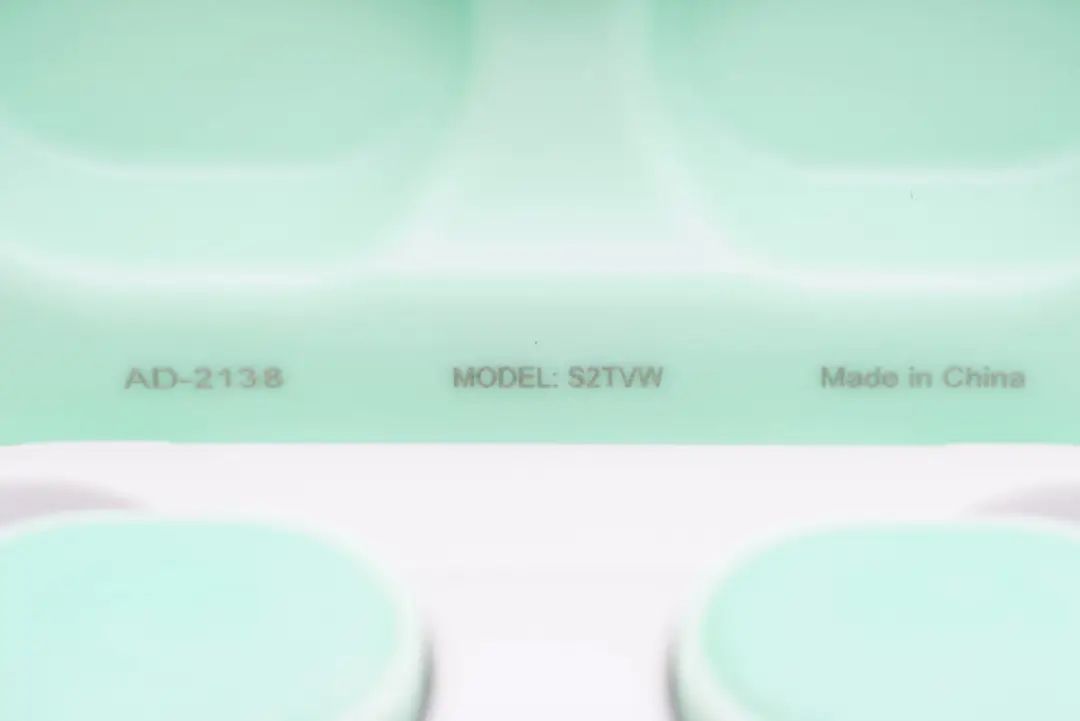
Close-up of the information on the inside of the case lid, model S2TVW, made in China.
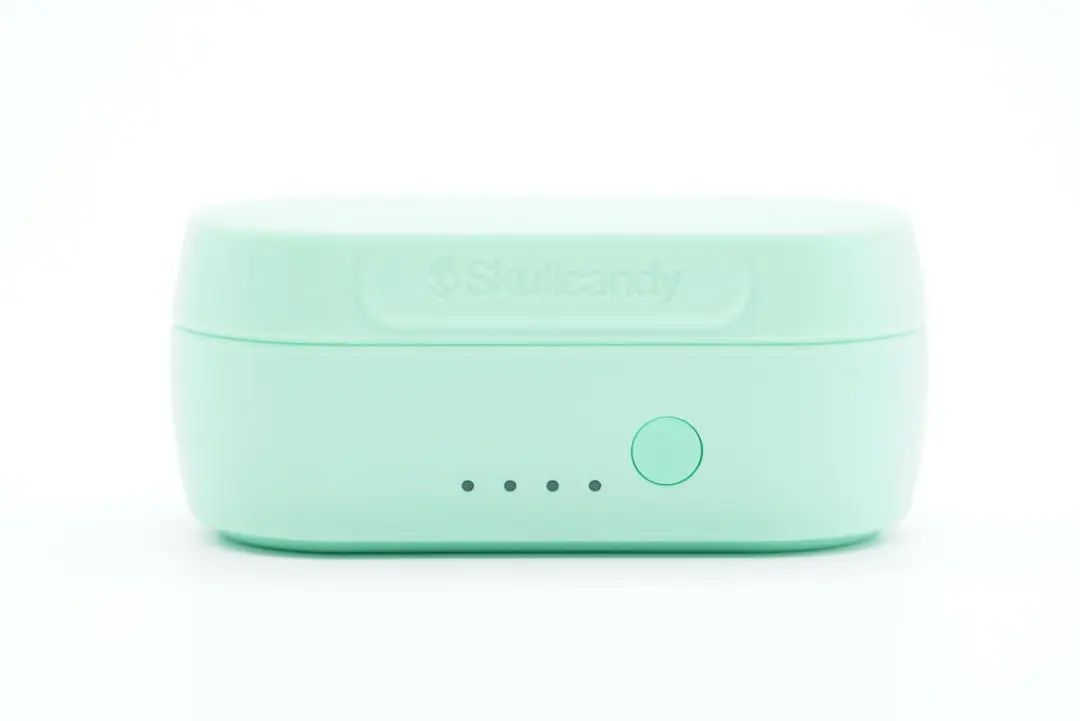
The front of the charging case features the Skullcandy logo, power button, and battery indicator light.
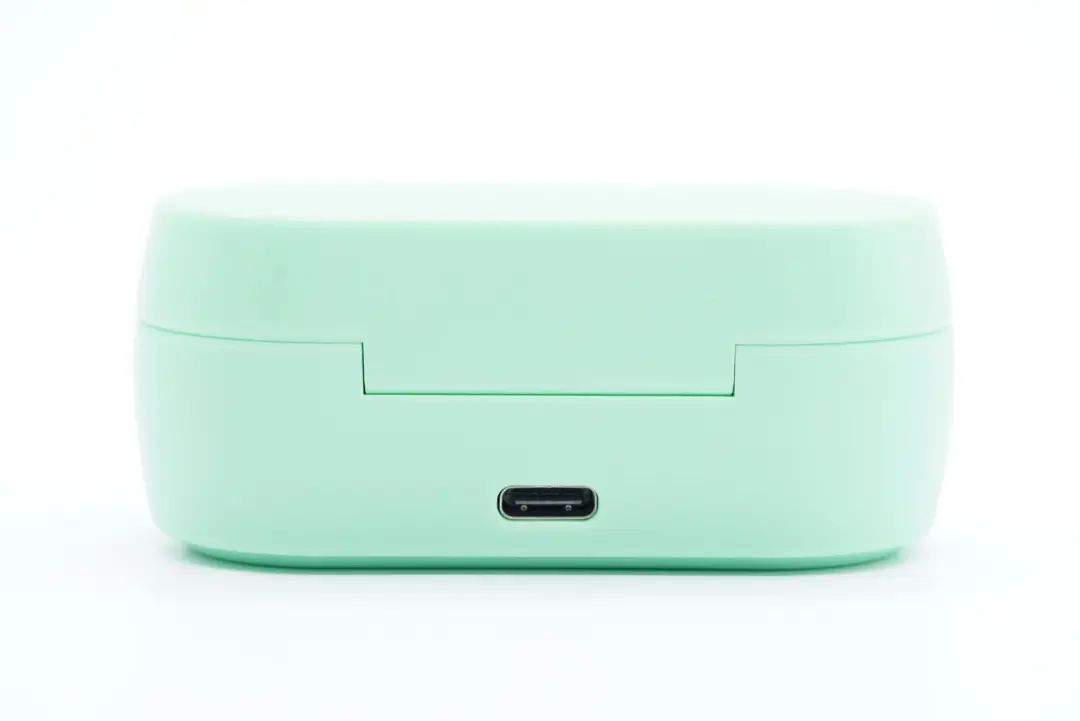
The back features a USB-C charging port, following the current trend of not being picky about chargers.
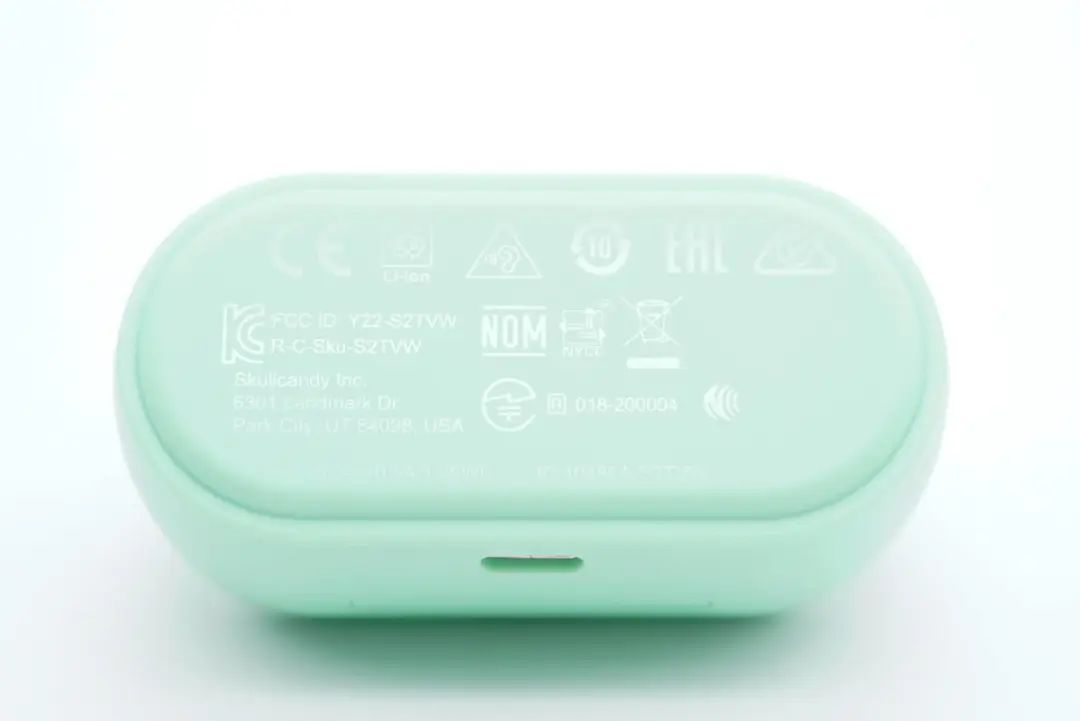
The bottom shell has product-related parameters: 5V0.5A 1.85Wh, along with KC, CE, NOM, NYCE, EAC certification information.

The total weight of the earbuds and charging case is 64.3g.
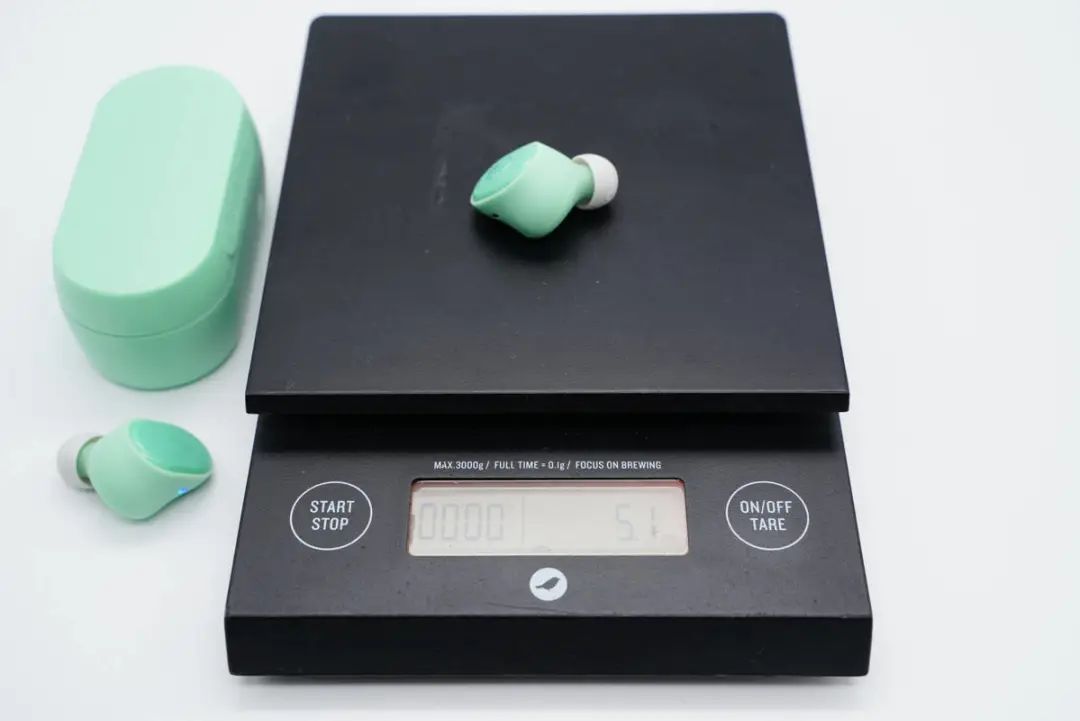
The weight of a single earbud is 5.1g.
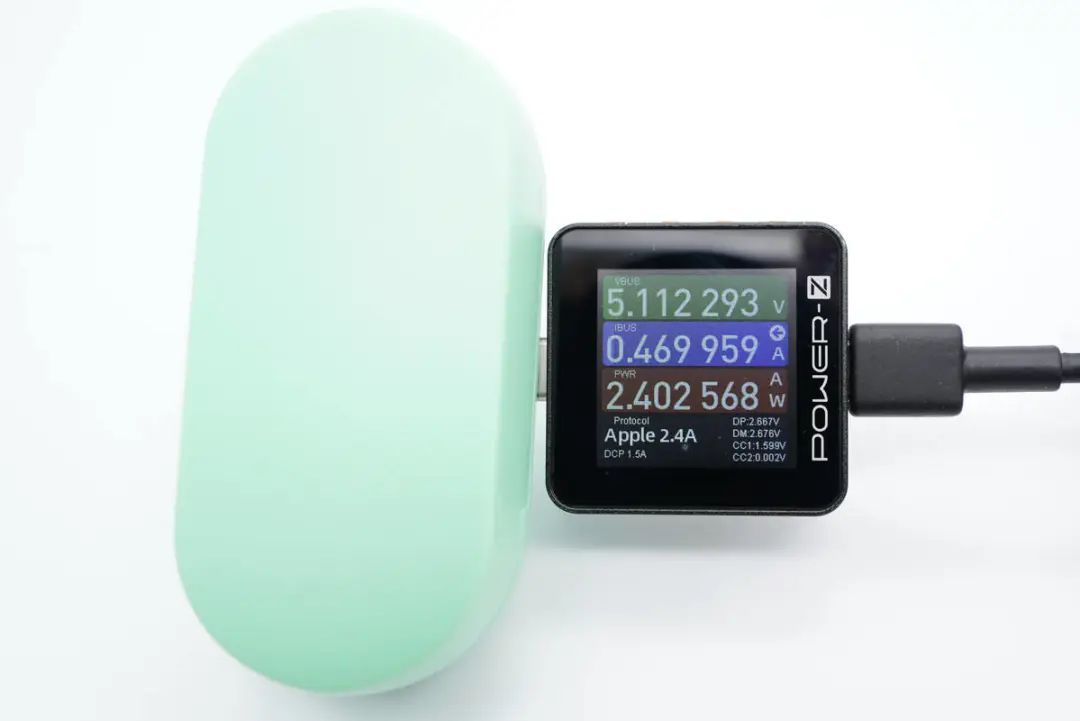
Charging the earbuds using the charging case, the input power measured by ChargerLAB POWER-Z KM002C is 5.11V 0.47A 2.4W.
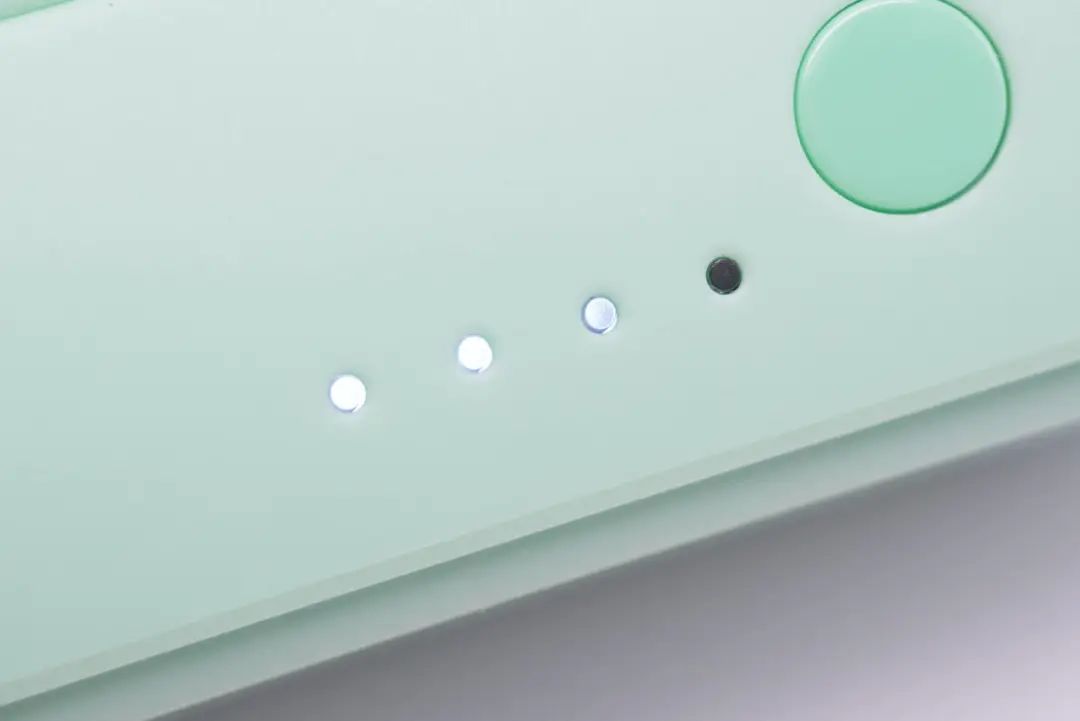
The indicator light on the charging case lights up white.

Disassembly of Skullcandy TWS Earbuds
The disassembly of this earbuds’ charging case is relatively easy, as it can be pried open with a spudger.
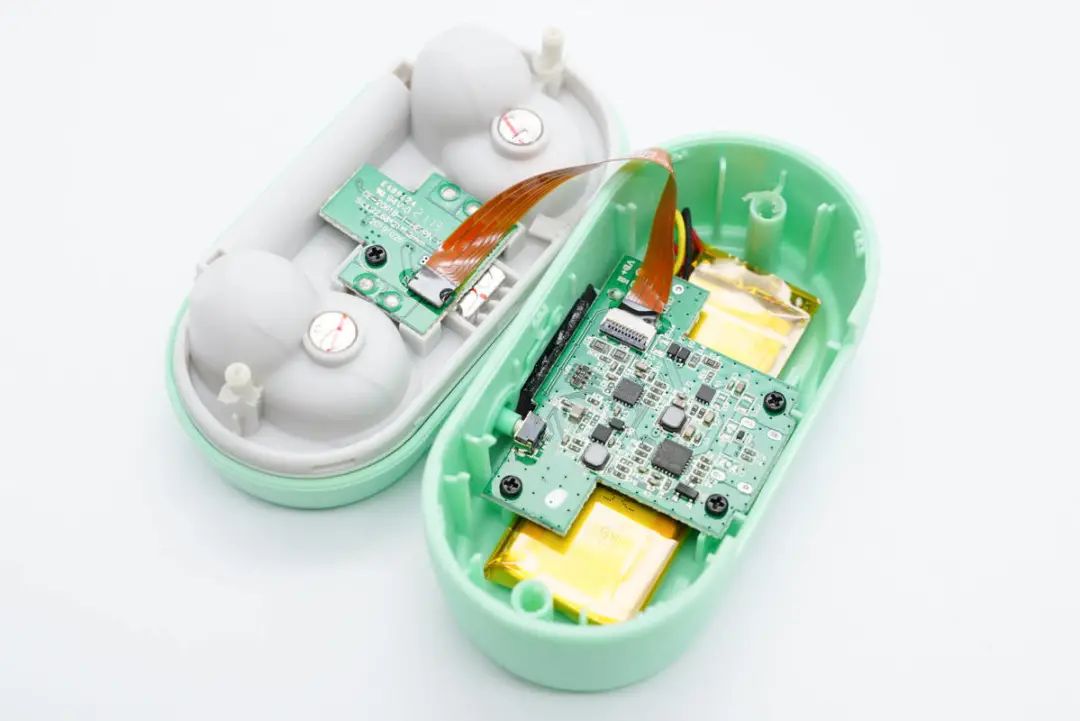
The inside of the charging case adopts a stacked design, with the PCB corresponding to the charging compartment shell design, and the battery located at the bottom of the charging compartment, effectively utilizing space and reducing volume.
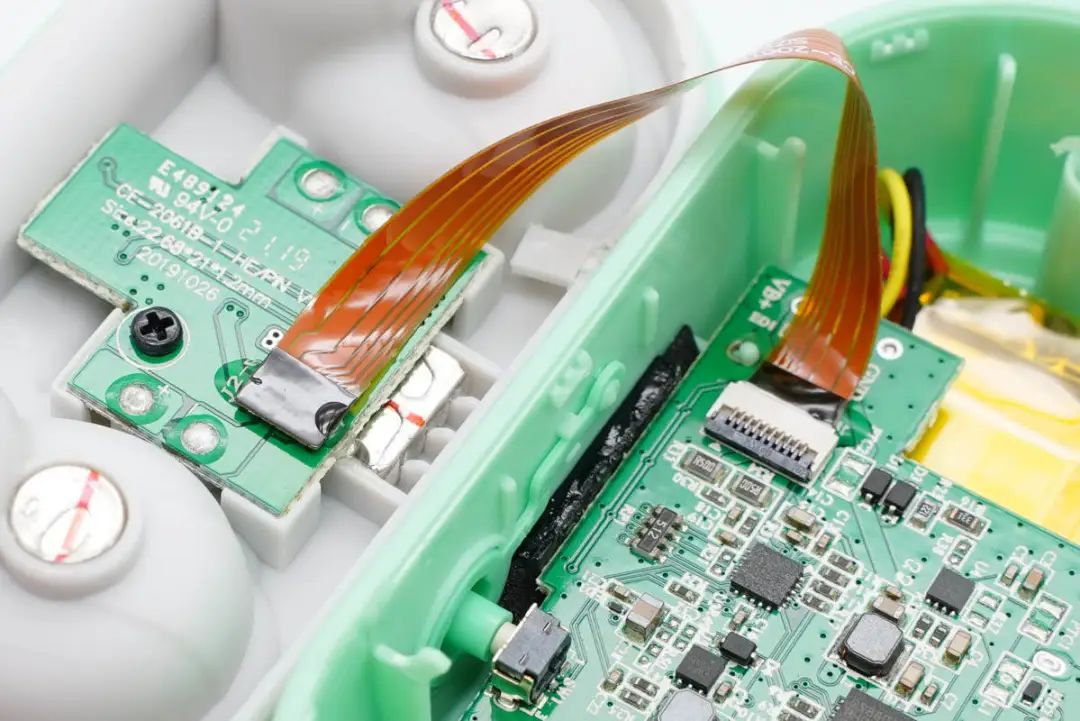
The charging contact board is connected with a ribbon cable, making it easy to assemble.
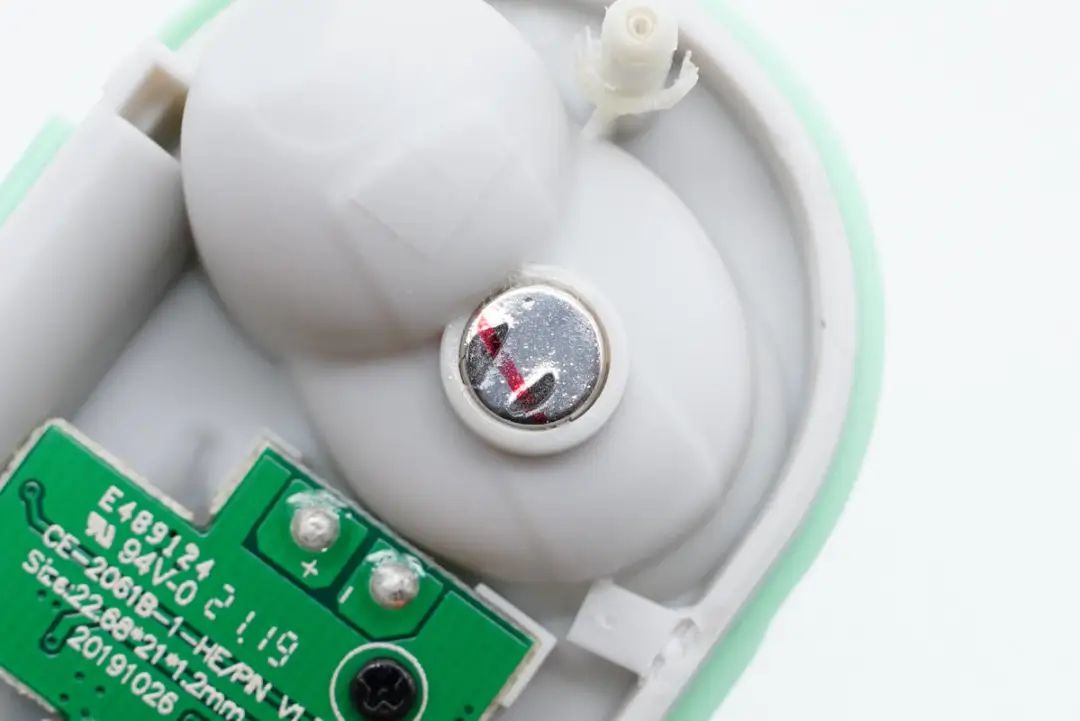
Close-up of the magnet used to hold the earbuds, which is glued inside the housing.
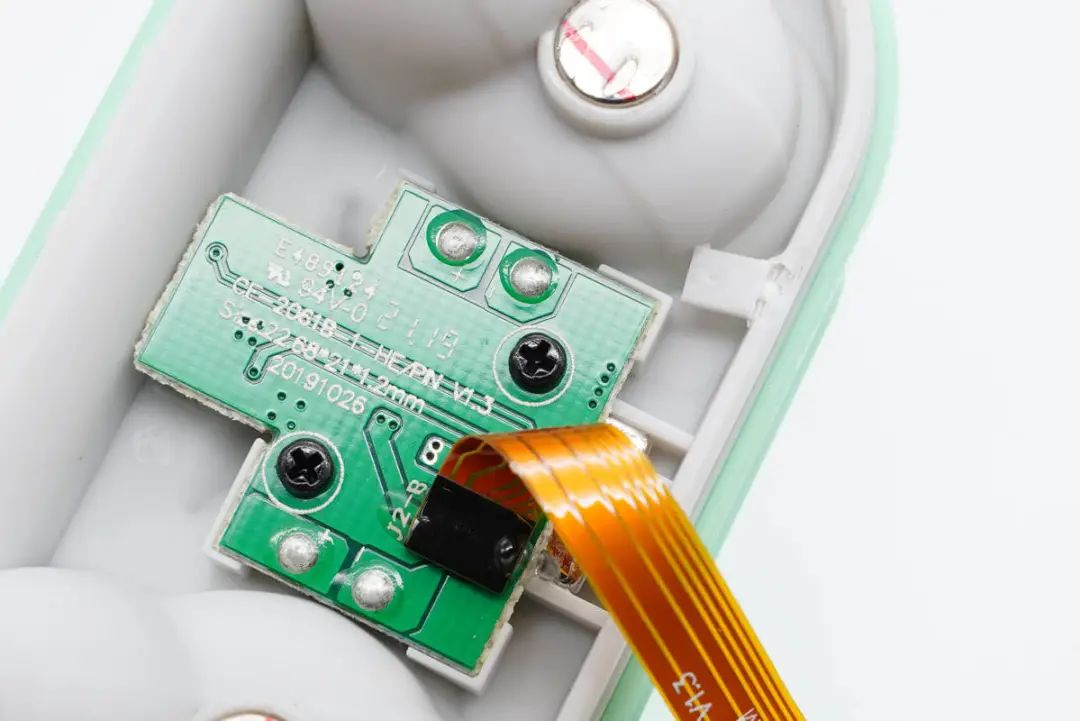
The small board for charging the earbuds is fixed with screws inside the charging case housing.
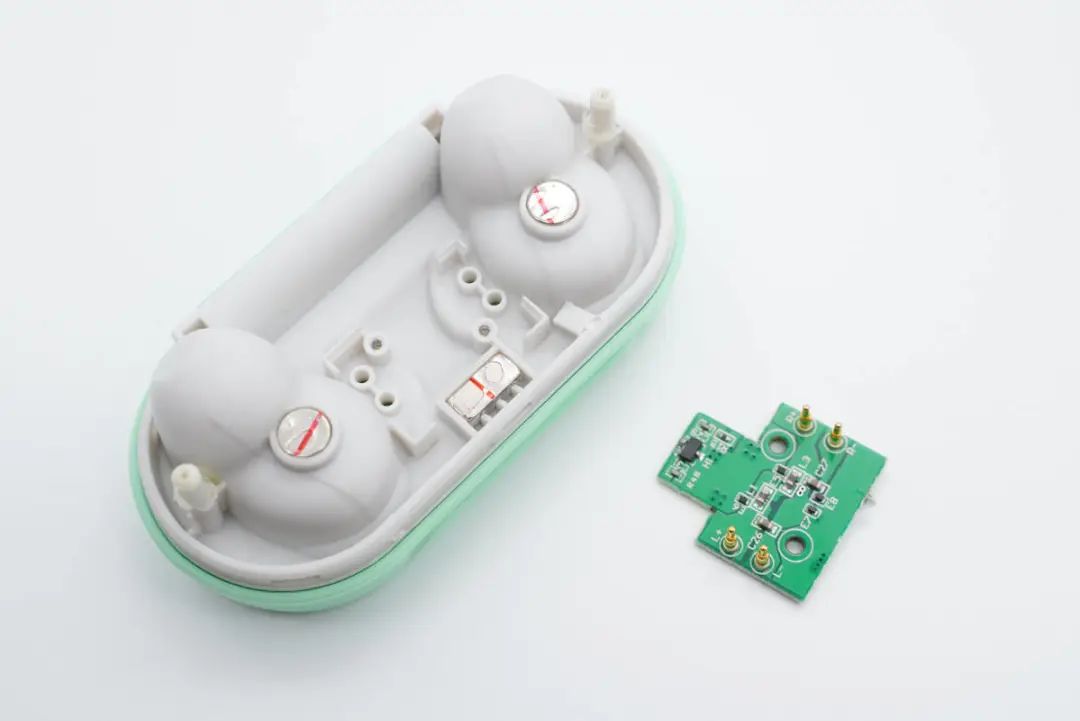
Unscrew the screws to remove the charging small board, which is soldered with a pin header and a Hall element.
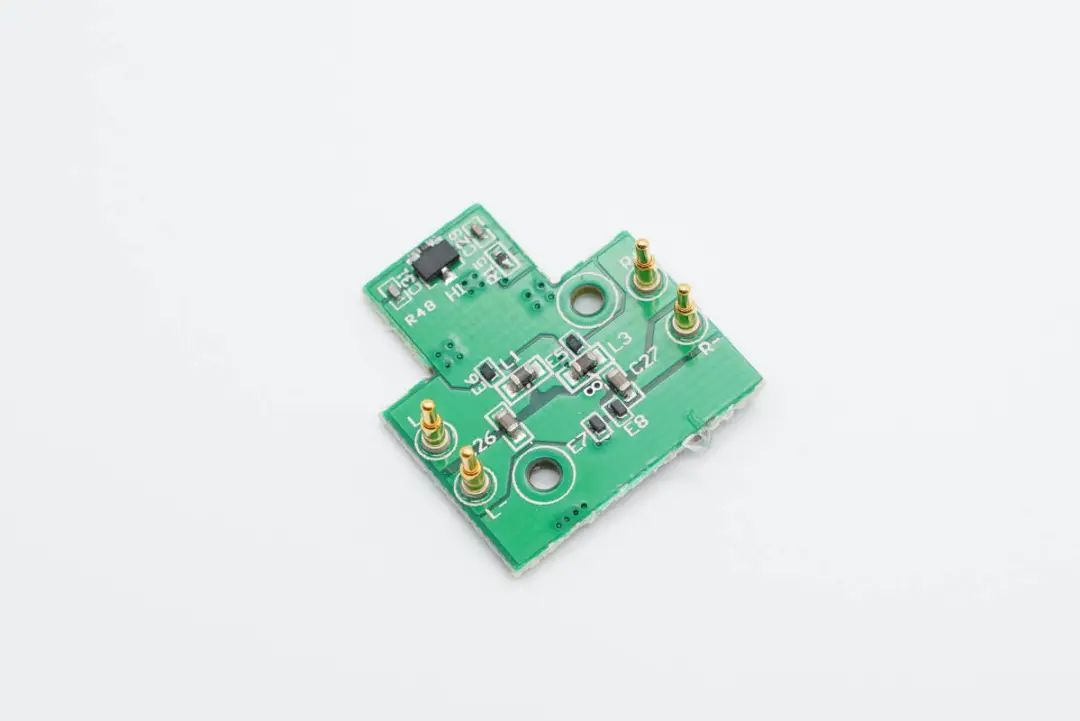
Close-up of the small board, the charging output for the earbuds has inductors, capacitors for filtering, and a TVS for electrostatic protection.
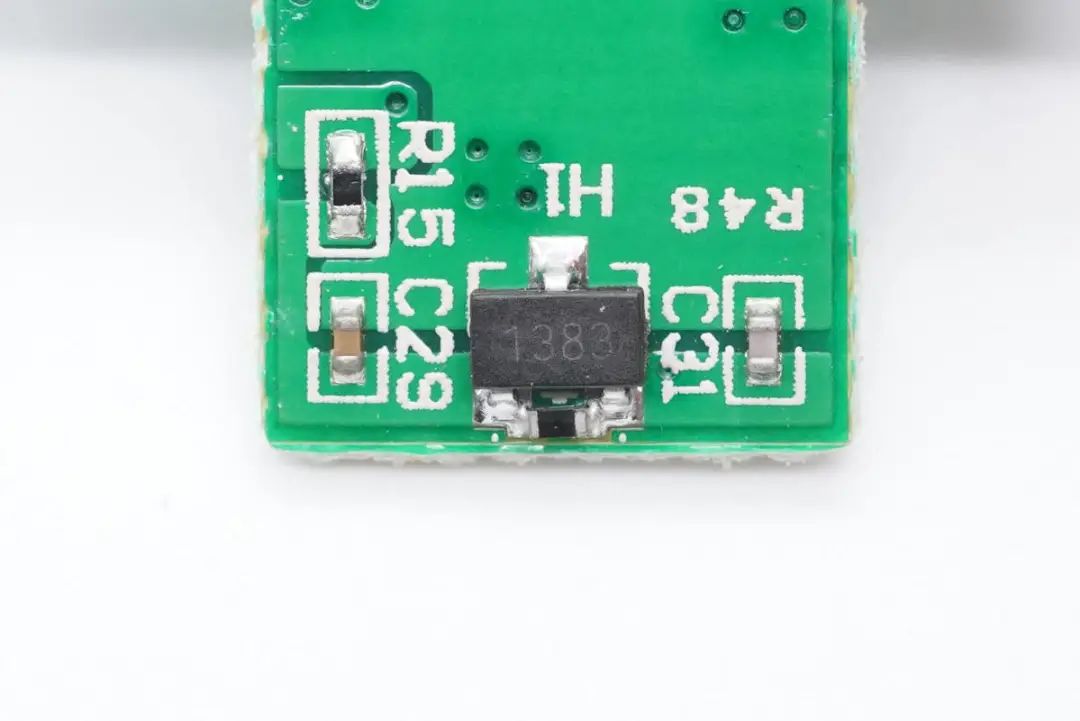
The Hall element is printed with 1383, used to detect changes in the magnetic field when the charging case lid is opened and closed, outputting an electrical signal to the microcontroller to control the earbuds’ power on or off.
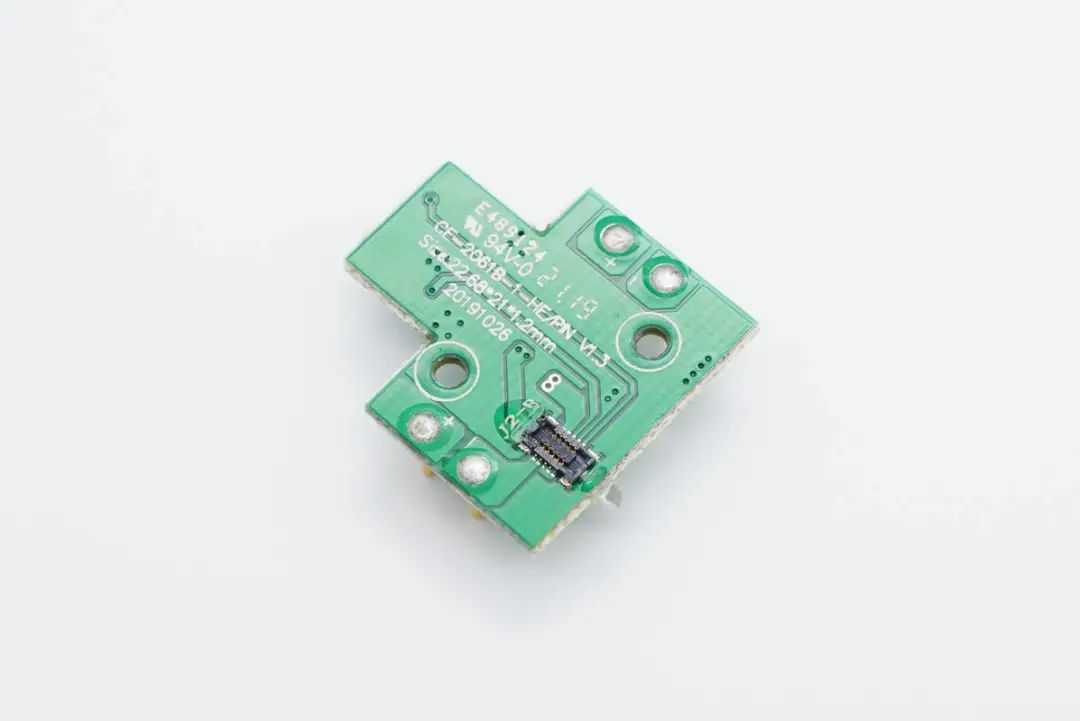
The back of the charging small board is soldered with a BTB connector.
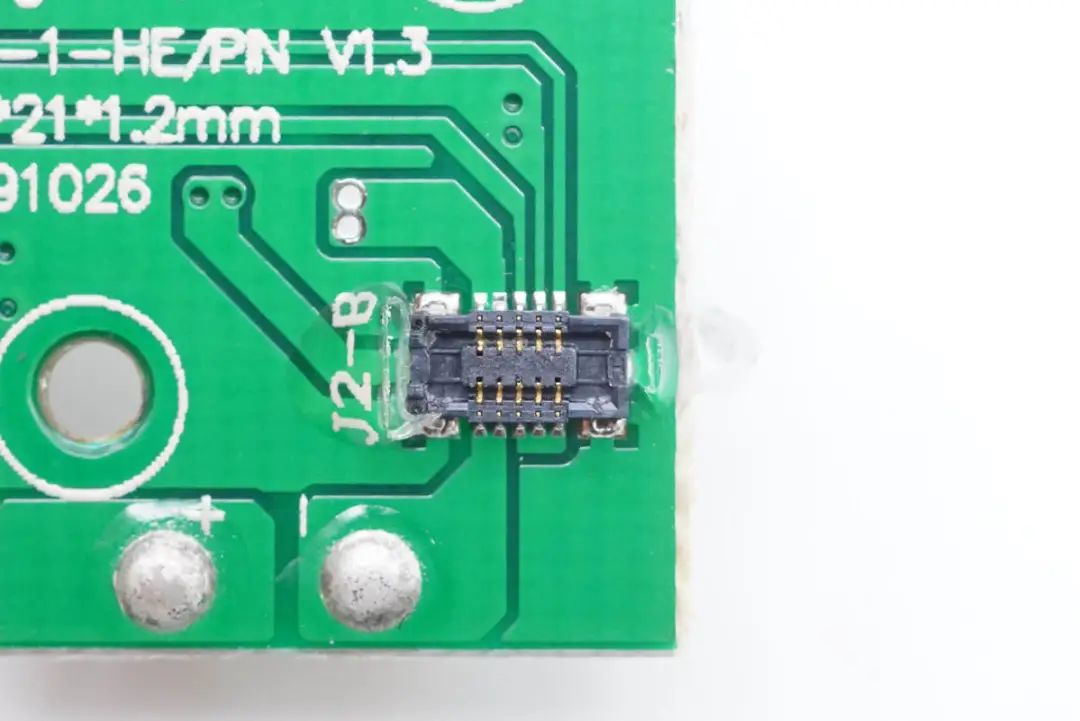
Close-up of the BTB connector, fixed with glue.
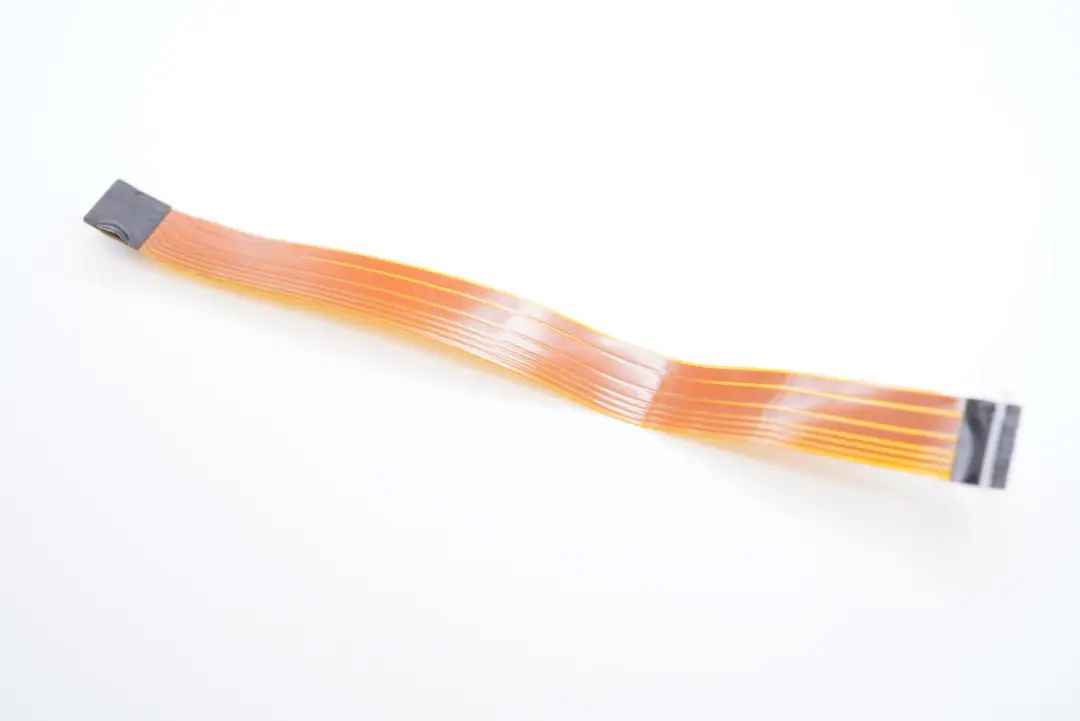
Close-up of the ribbon cable connecting the charging case mainboard and charging small board.
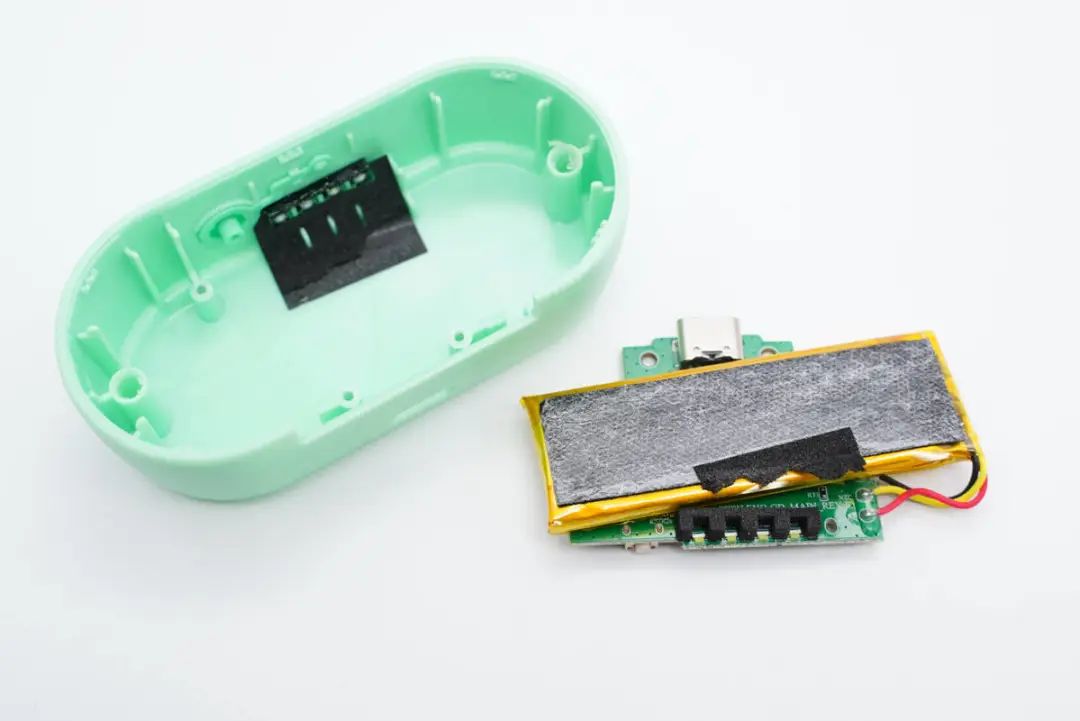
Continuing to disassemble the charging case, the battery is attached to the bottom of the charging case with double-sided tape.
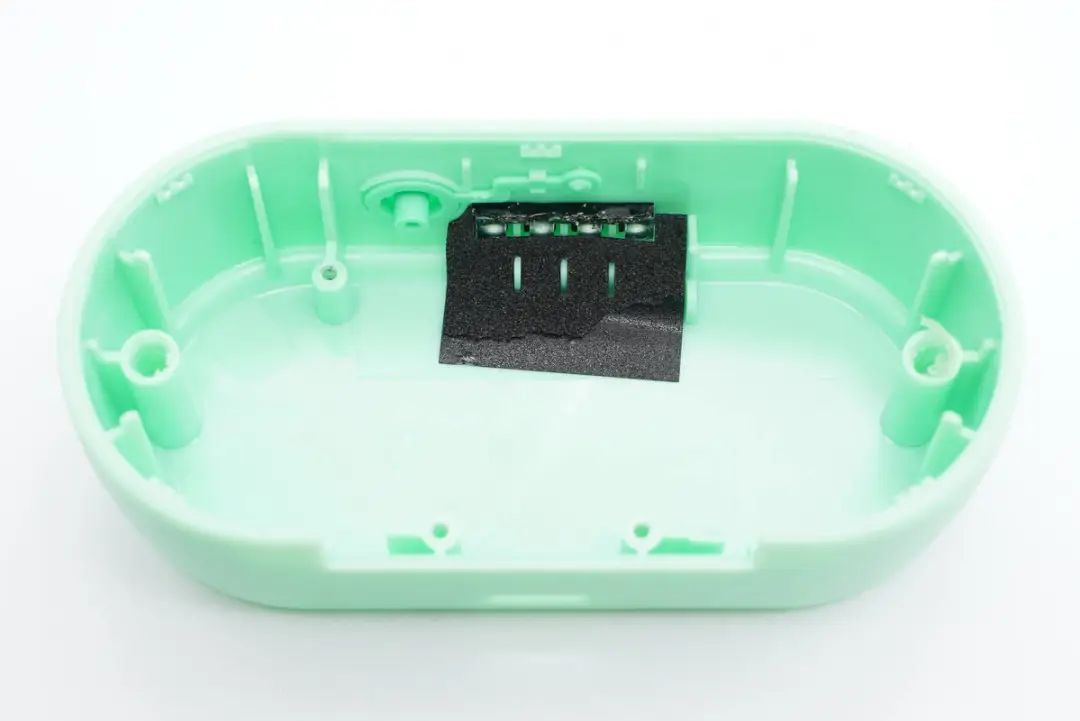
The inside of the charging case is lined with tape to prevent light leakage.
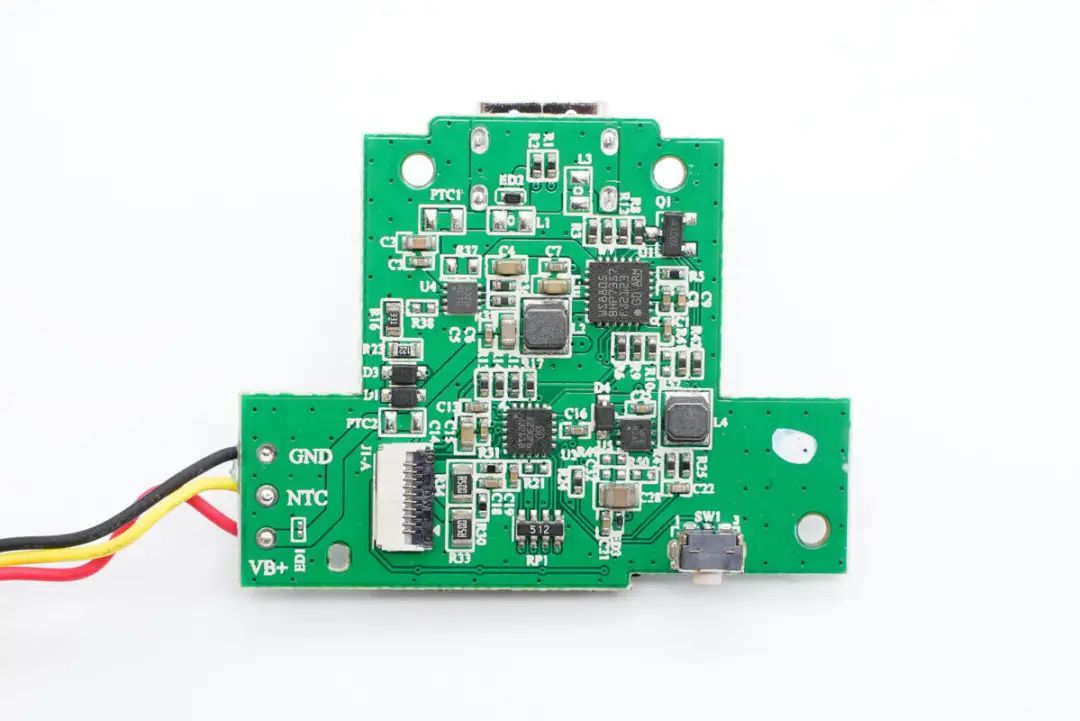
The close-up of the charging case mainboard shows the output ribbon cable socket, input protection chip, two GD30WS8805 chips from **GigaDevice**, and necessary passive components.
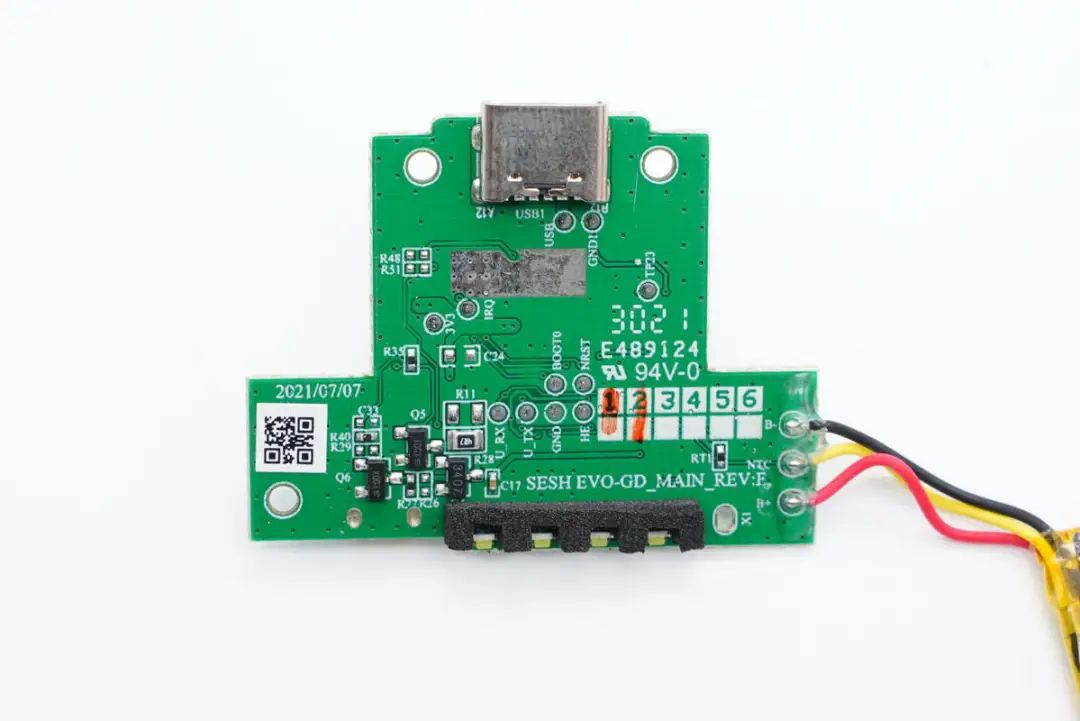
The back of the charging case mainboard has a USB-C female socket, MOSFETs controlling the charging of the earbuds, and indicator lights showing battery levels; the battery is connected to the mainboard with wires.
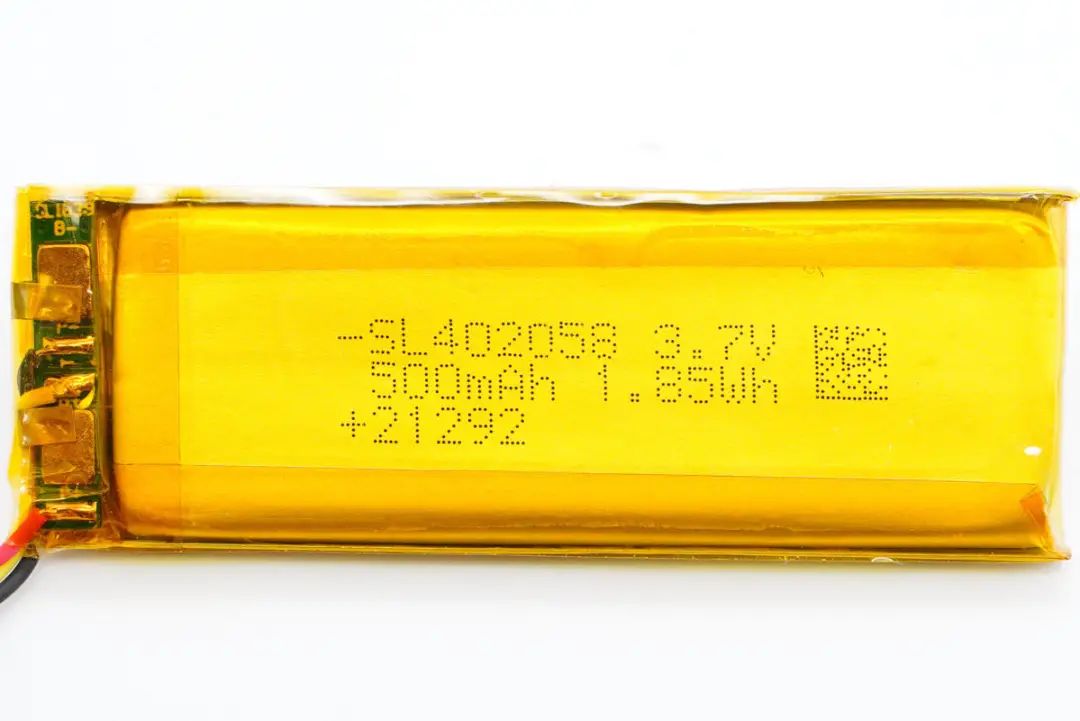
The built-in lithium battery of the charging case is highlighted, with dimensions of 402058, a voltage of 3.7V, and a capacity of 500mAh, 1.85Wh.
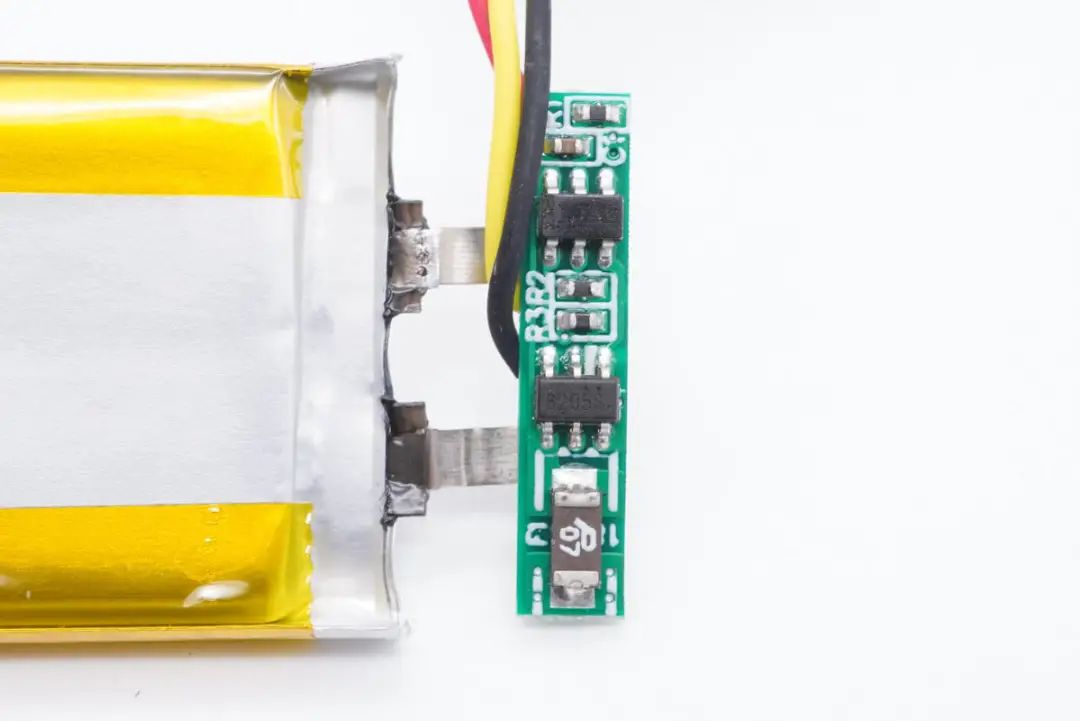
The battery is soldered with a protection board for overcurrent, overcharge, and over-discharge protection. The protection board also has a PPTC self-resetting fuse for overcurrent protection and a thermistor for detecting battery temperature.
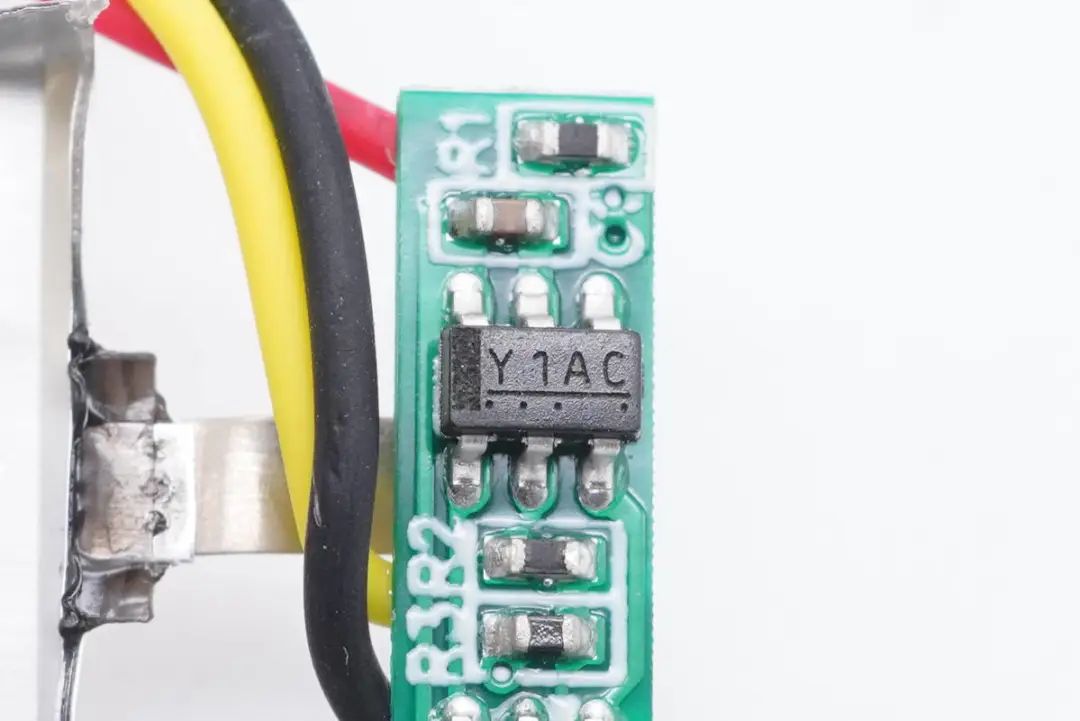
The battery protection chip is printed with Y1AC.
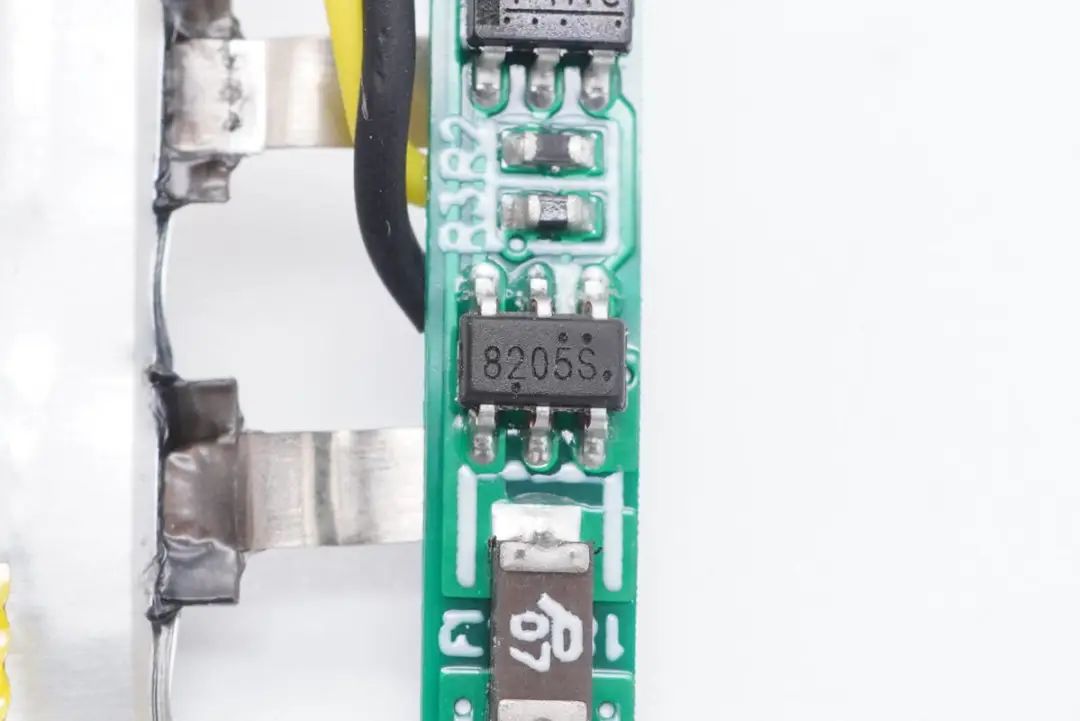
The 8205S battery protection tube.
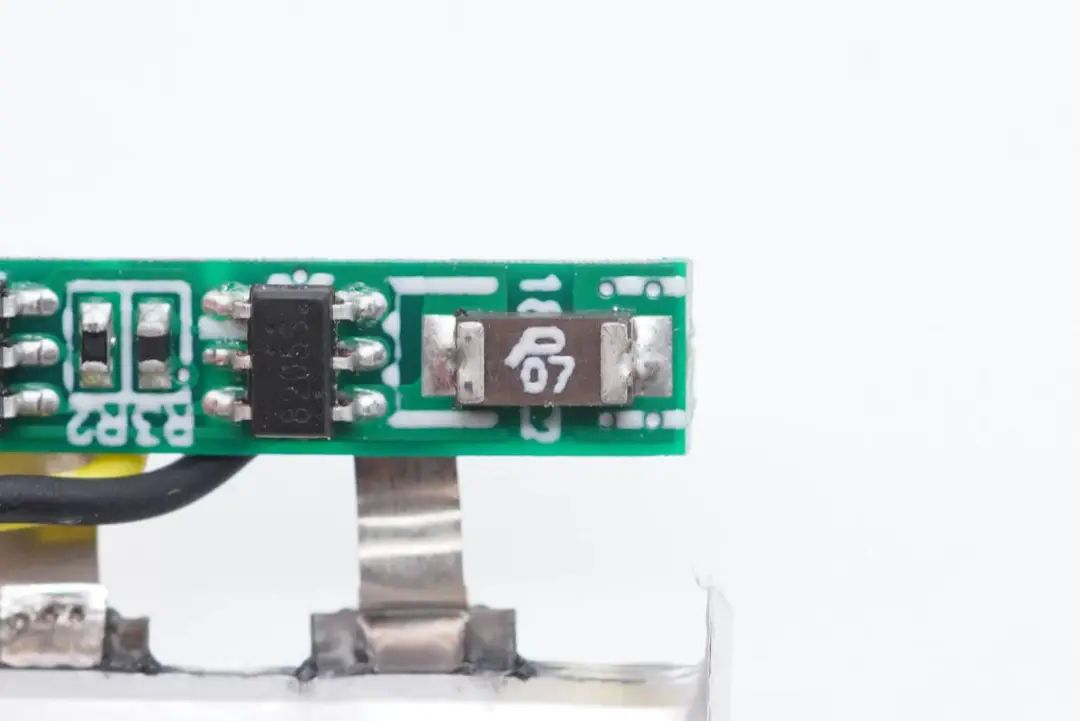
The PPTC self-resetting fuse for overcurrent protection.
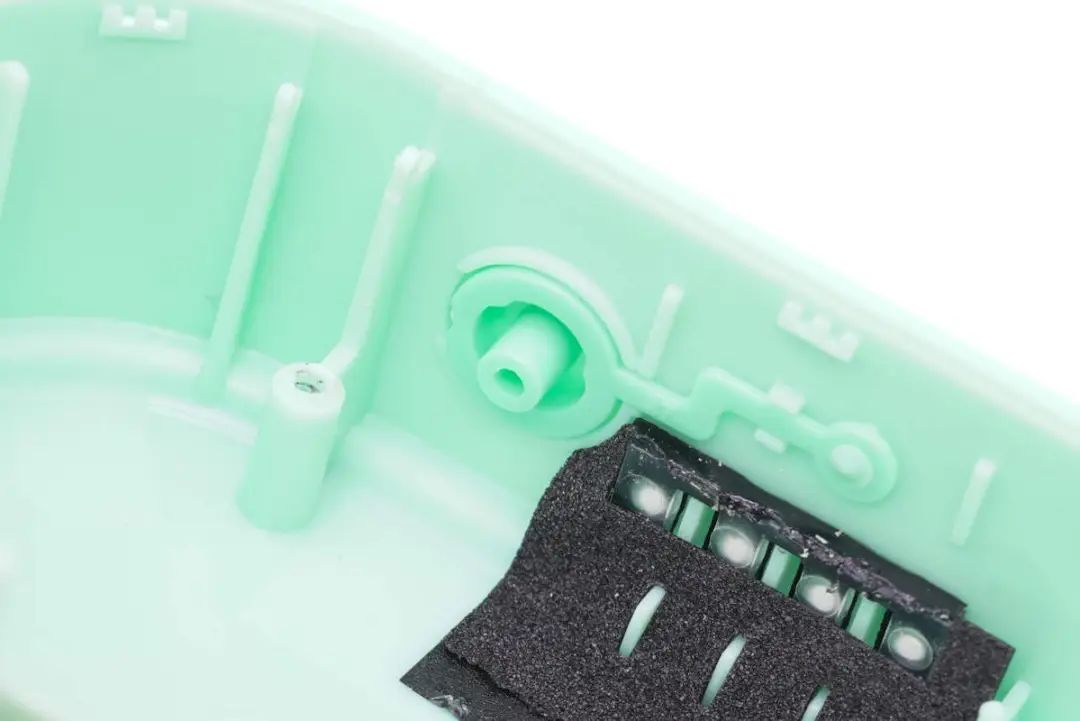
Close-up of the plastic button for the connection button.
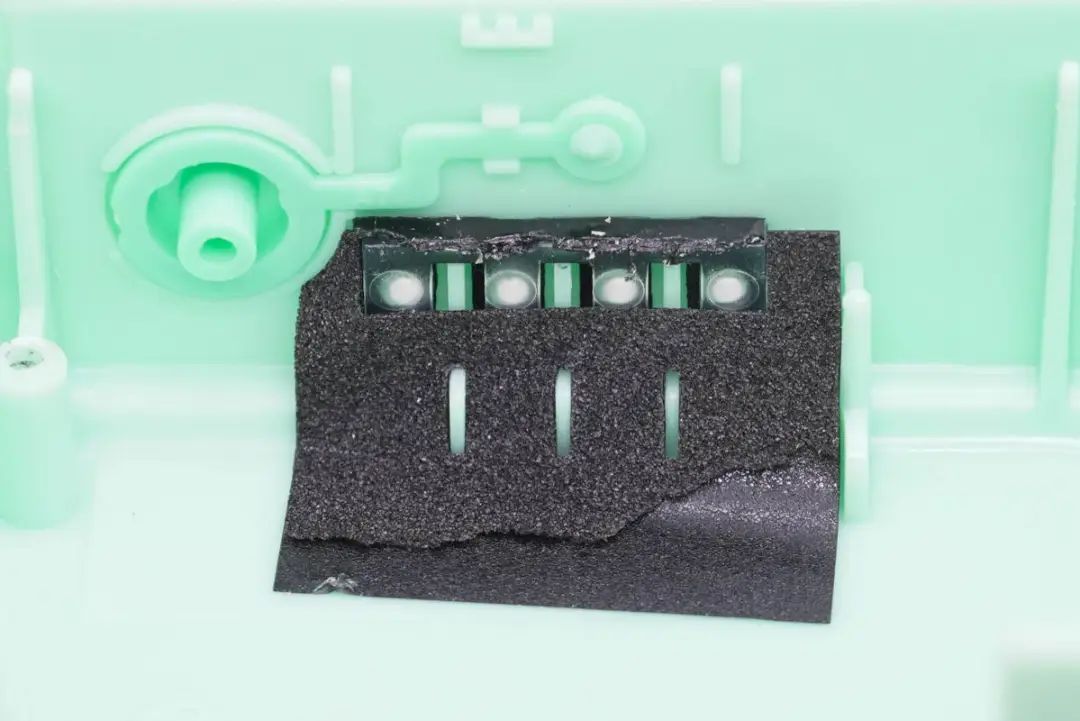
Close-up of the light guide structure for the battery level indicator light of the charging case.
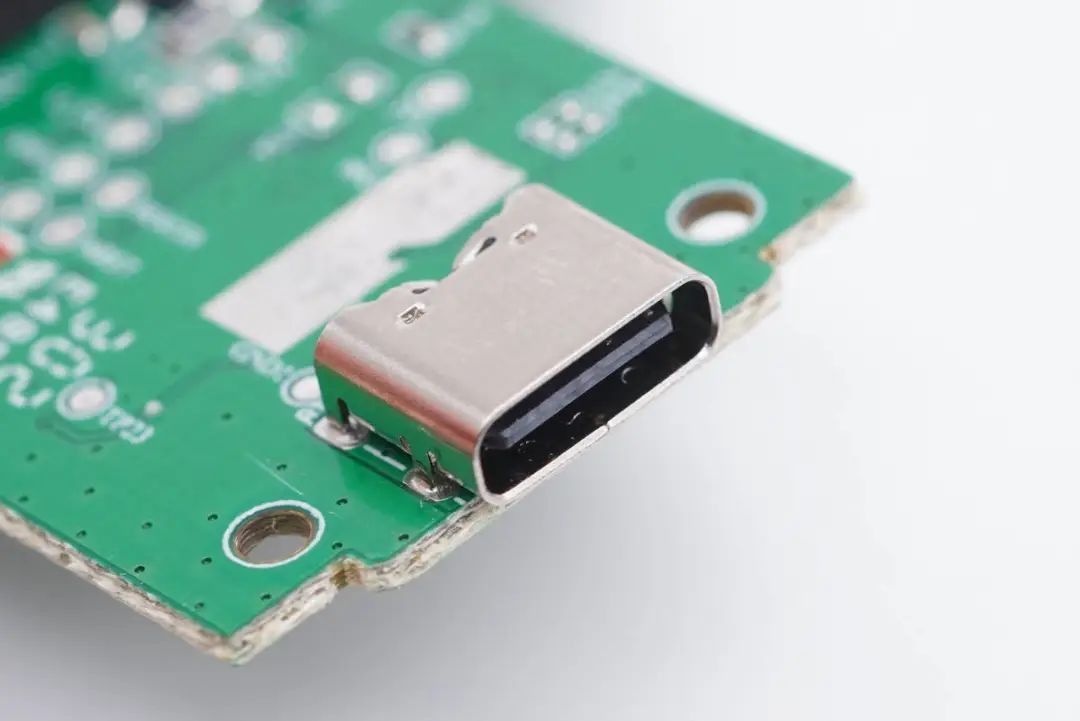
The USB-C female socket is fixed with through-hole soldering.
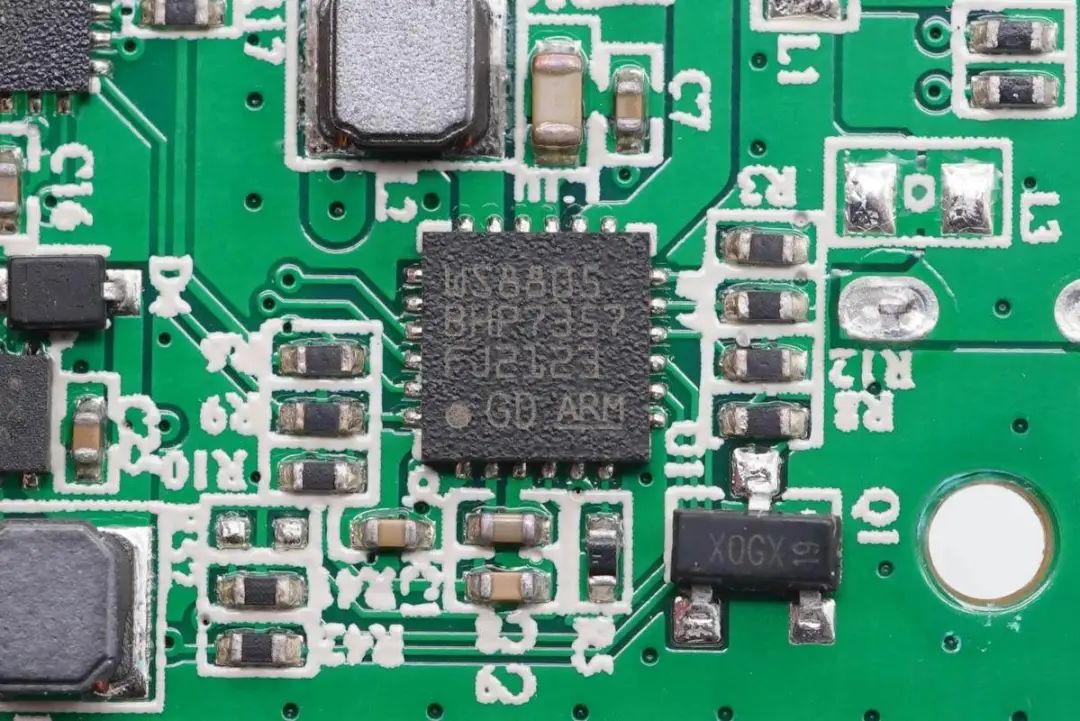
The power input is sent to the **GigaDevice** GD30WS8805X PMIC, which is a highly integrated, programmable power management chip with low quiescent current, suitable for wearable devices and low-power battery-powered applications. The GD30WS8805X integrates a switch charger and synchronous boost converter, supporting a maximum charging current of 1.2A, which can be programmed via I2C, supporting battery applications of 4.1V, 4.2V, 4.35V, and 4.4V. The operating current in sleep mode is less than 5uA, supporting earbuds’ in-and-out detection and communication with the earbuds. The chip has a 0.6A boost output with an efficiency of up to 95% and supports power path management, with programmable output current limits. The built-in synchronous boost converter provides a fixed 5V output, and the chip includes a 12-bit ADC for battery level measurement, with a low-noise LDO outputting 50mA for powering other chips.
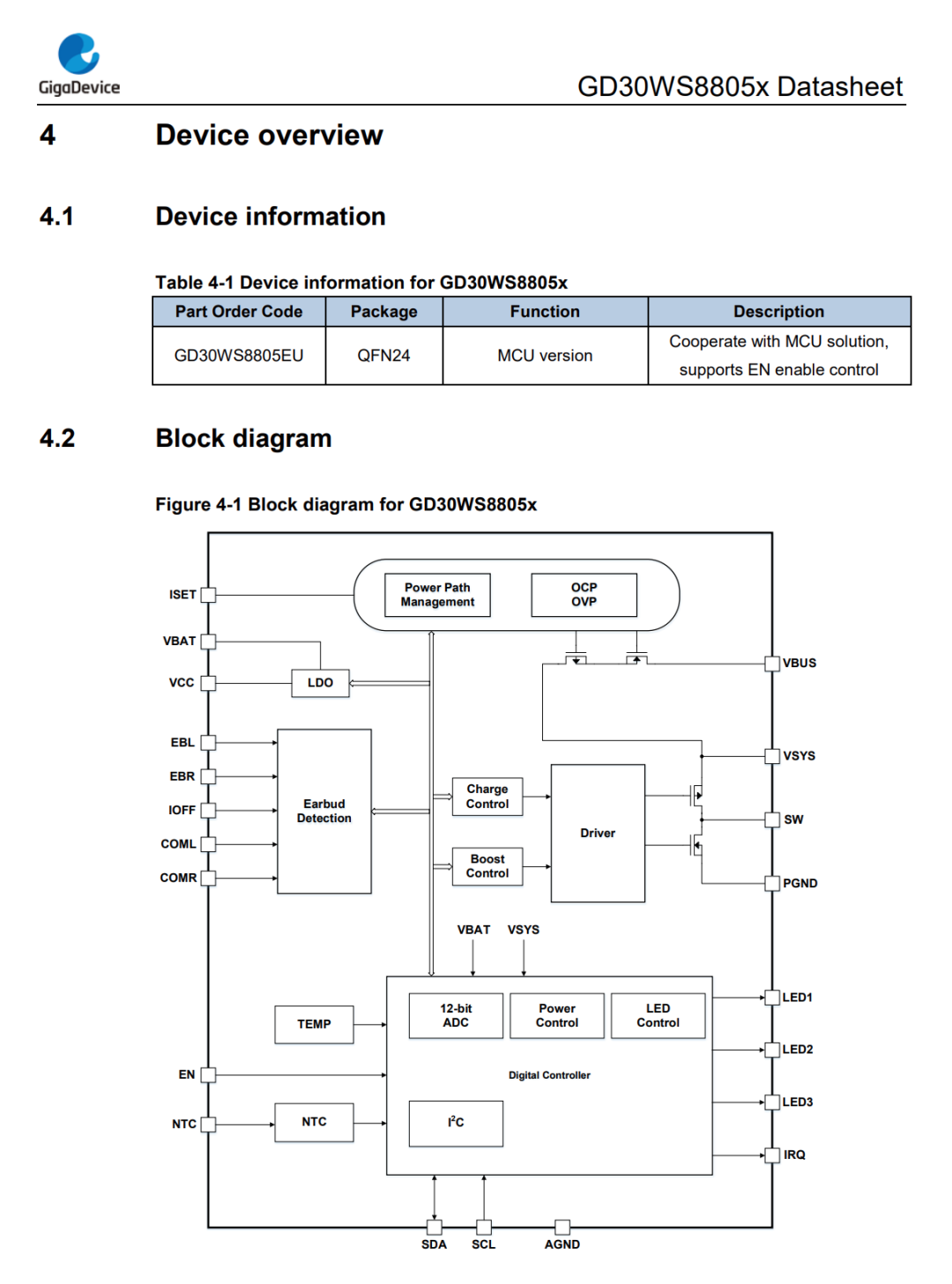
Internal block diagram of the **GigaDevice** GD30WS8805X chip.
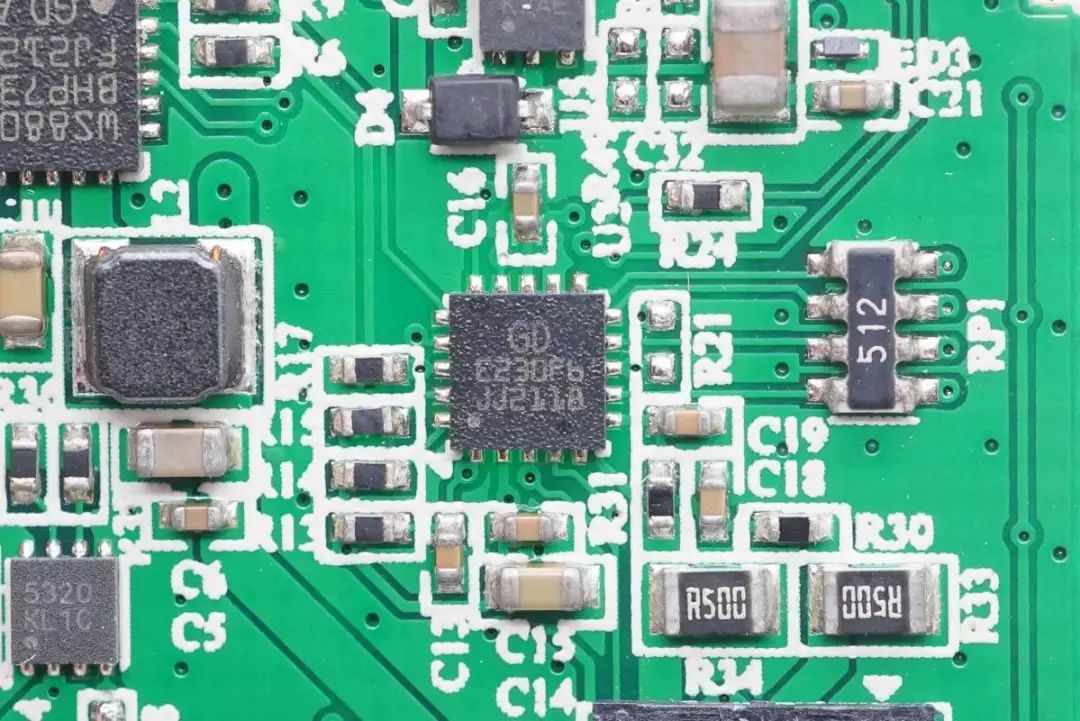
Another MCU also from **GigaDevice**, the GD32E230F6V6, is a 32-bit low-power MCU with a Cortex-M23 core, featuring 6KB SRAM and 32K FLASH, packaged in LGA20 for controlling the functions of the charging case.
The GD32E230 series microcontrollers support a working voltage of 1.8-3.6V and an operating environment of -40 to 85℃. The built-in power-saving mode optimizes wake-up delay and power consumption, suitable for low-power device applications. The GD32E230 microcontroller is applicable in industrial control, user interfaces, power displays, alarm systems, handheld devices, etc.
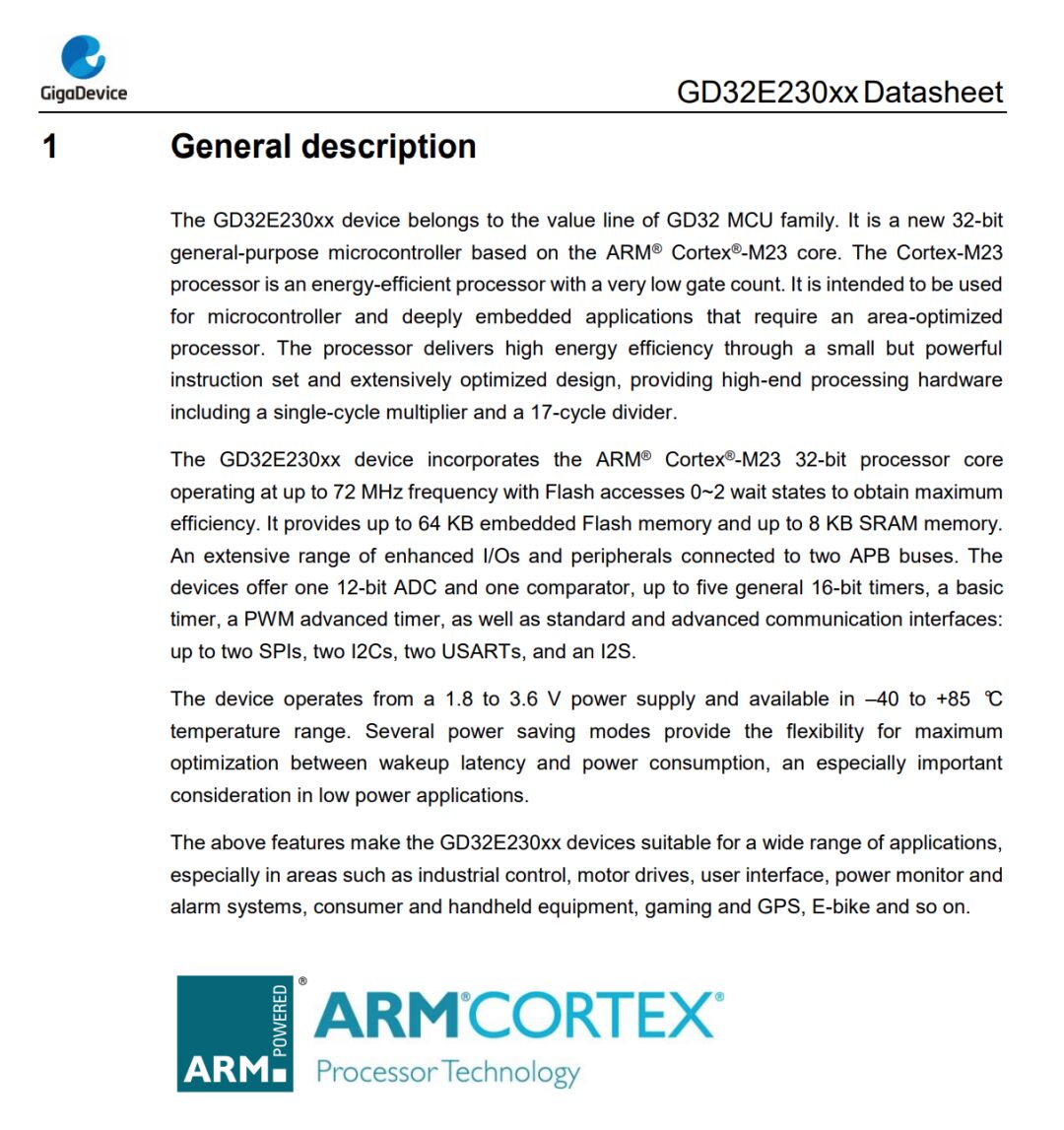
Description of the **GigaDevice** GD32E230 series microcontroller.
Through disassembly, we learned that the **GigaDevice** chips are used in products such as the **Xiaomi Watch S1**, **DJI wireless microphone**, **BYD 1760W electric vehicle AC charging gun**, **Hisense 2.0 Soundbar**, and **Apple AirTag** wireless tracker.
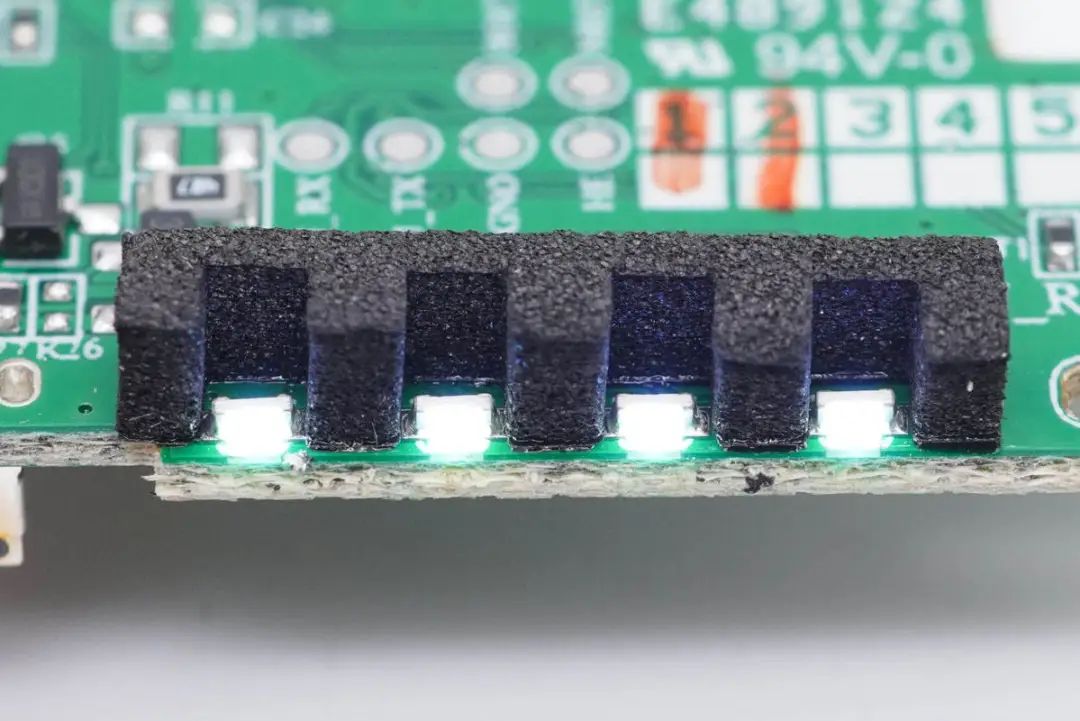
Close-up of the four LED battery indicator lights, shielded with foam grids to avoid interference.
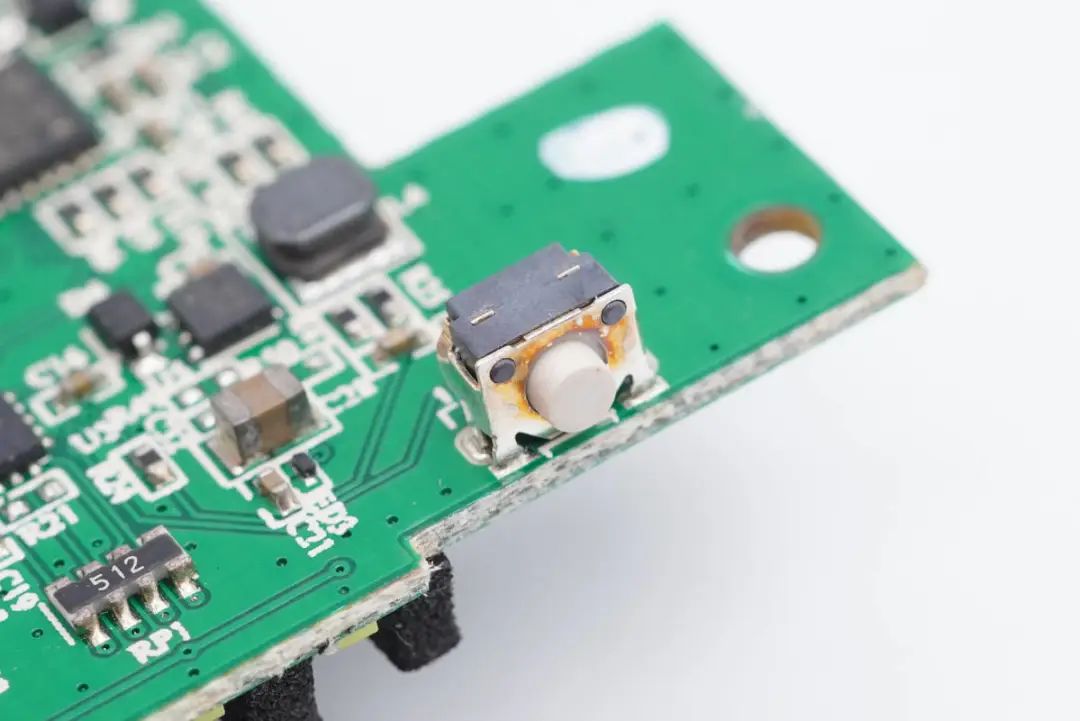
Close-up of the button switch.
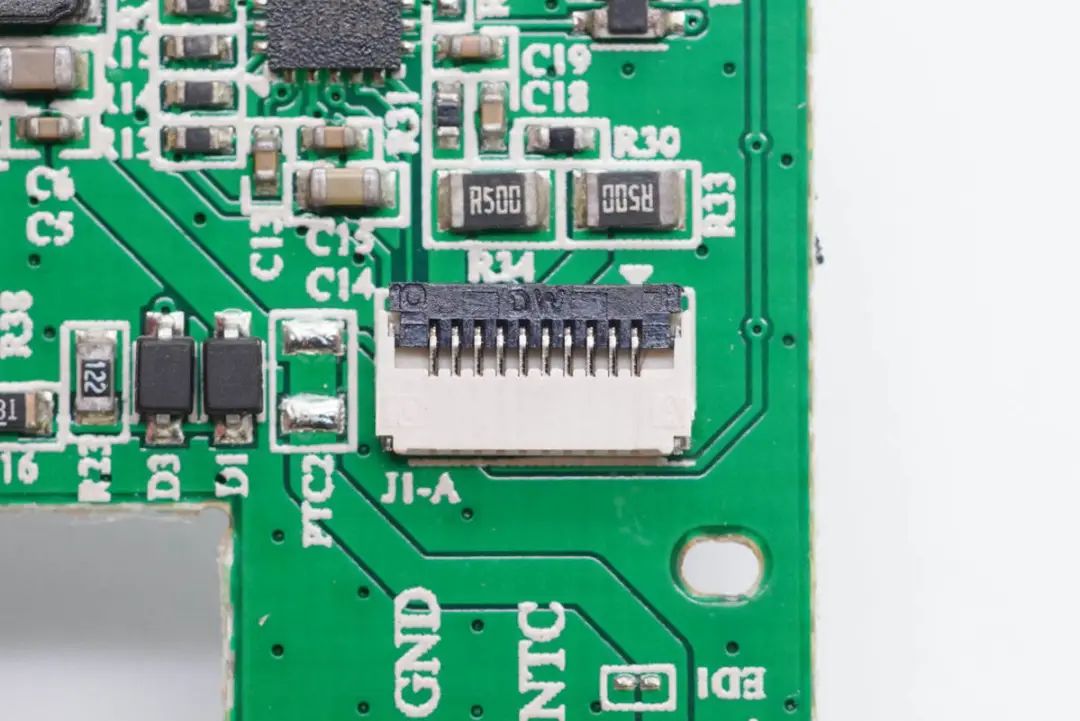
Near the ribbon cable socket are two 0.5Ω current sensing resistors used for detecting the current during earbud charging.
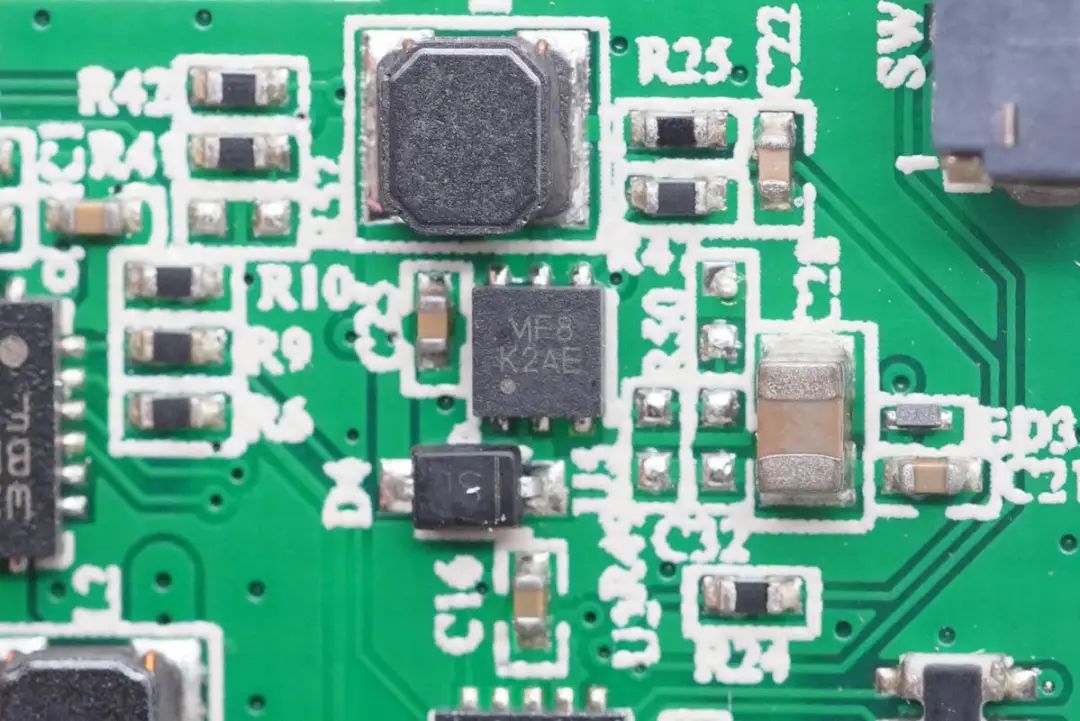
The boost chip printed with MF8.
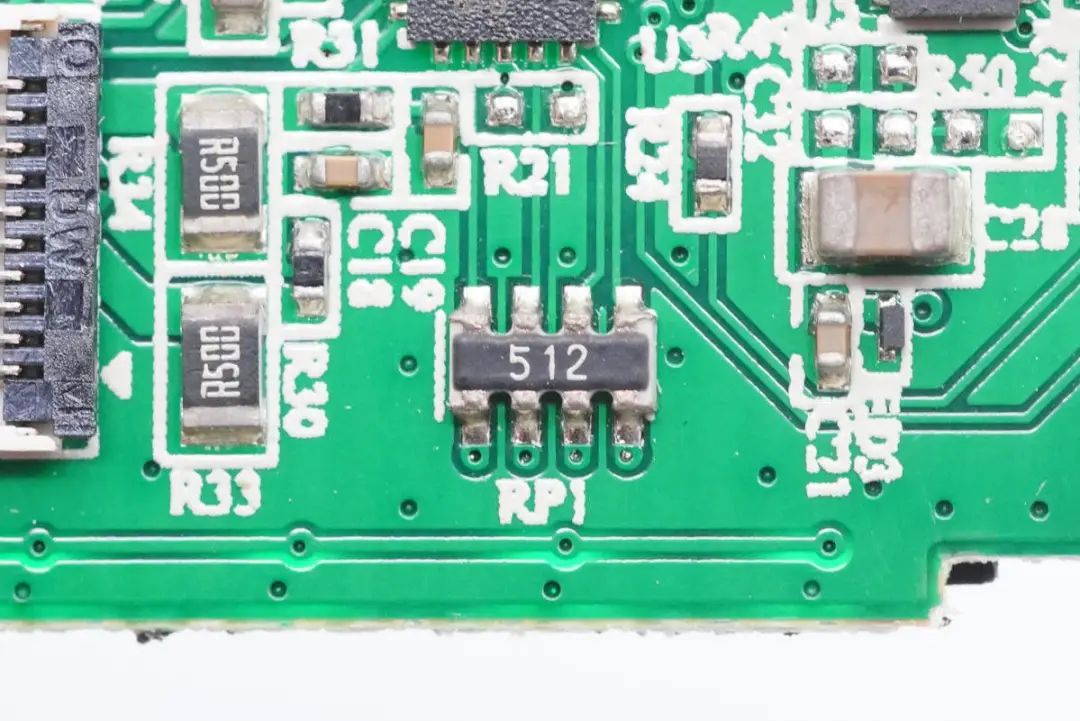
Close-up of the 5.1kΩ resistor.
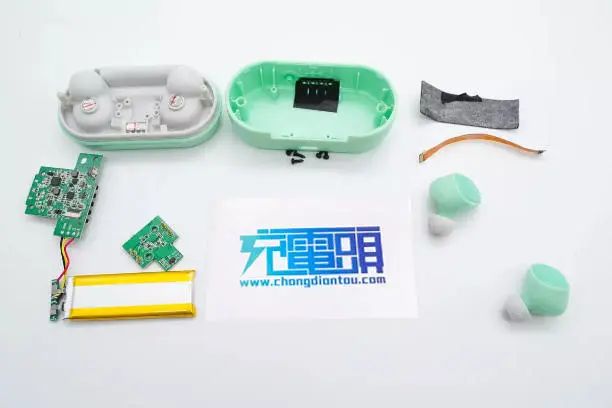
All disassembly is complete; here’s a family photo.
Charging Head Network Disassembly Summary
The Skullcandy earbuds we disassembled feature a fresh green appearance, and the flip design of the charging case allows for good storage of the earbuds, making them convenient to use. The charging case contains a 500mAh lithium battery, charging via a Type-C interface.
The charging case is equipped with the **GigaDevice** GD30WS8805 for battery charging and boost management, with the chip integrating I2C communication, and parameters can be configured via the I2C bus, supporting path management. The accompanying microcontroller is the **GigaDevice** GD32E230F6V6, used for the overall control of the charging case.
Through the disassembly of this earbuds’ charging case, it was found that **GigaDevice** has launched a discharge and charge management solution suitable for TWS earbuds charging cases and portable handheld devices, achieving complete functionality with just a microcontroller. The chip features are powerful, and two chips can fulfill all functions of several existing chip solutions.
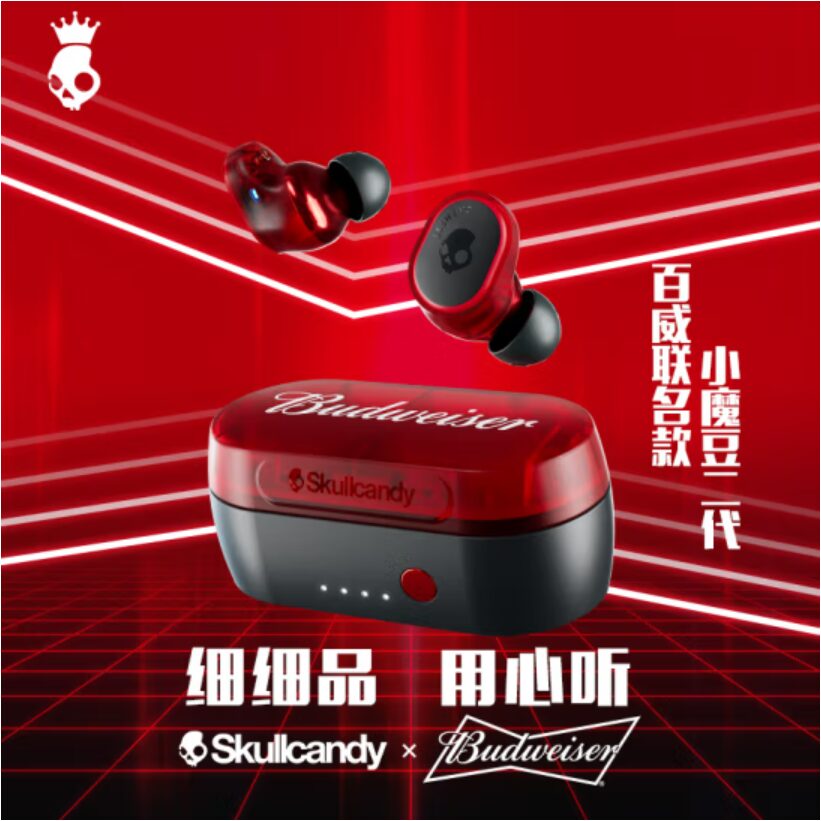
Recently, Skullcandy launched the limited edition **Bud 2** collaboration with Budweiser, whose internal PCBA structure is consistent with this disassembled **Sesh Evo** true wireless Bluetooth earbuds, also using the **GigaDevice** GD30WS8805 power management chip and GD32E230F6V6 microcontroller.

This earbuds not only has an eye-catching color scheme but also improves performance, making it best described as small yet exquisite. As is well-known, limited edition products often have higher quality requirements in production processes, and continuing to use the **GigaDevice** GD30WS8805 power management chip and GD32E230F6V6 microcontroller demonstrates the brand’s recognition of the performance and quality of these two chips.
Warm reminder: Click the original text at the end to purchase this product.
「Summit Registration」
During the 2022 (Spring) Asia Charging Exhibition, popular summits are open for registration.
2022 Asia Outdoor Power Supply Conference
2022 (Spring) USB PD & Type-C Asia Conference
2022 (Spring) Global Third Generation Semiconductor Industry Summit
2022 (Spring) China Cross-Border E-Commerce Charging Product Selection Conference
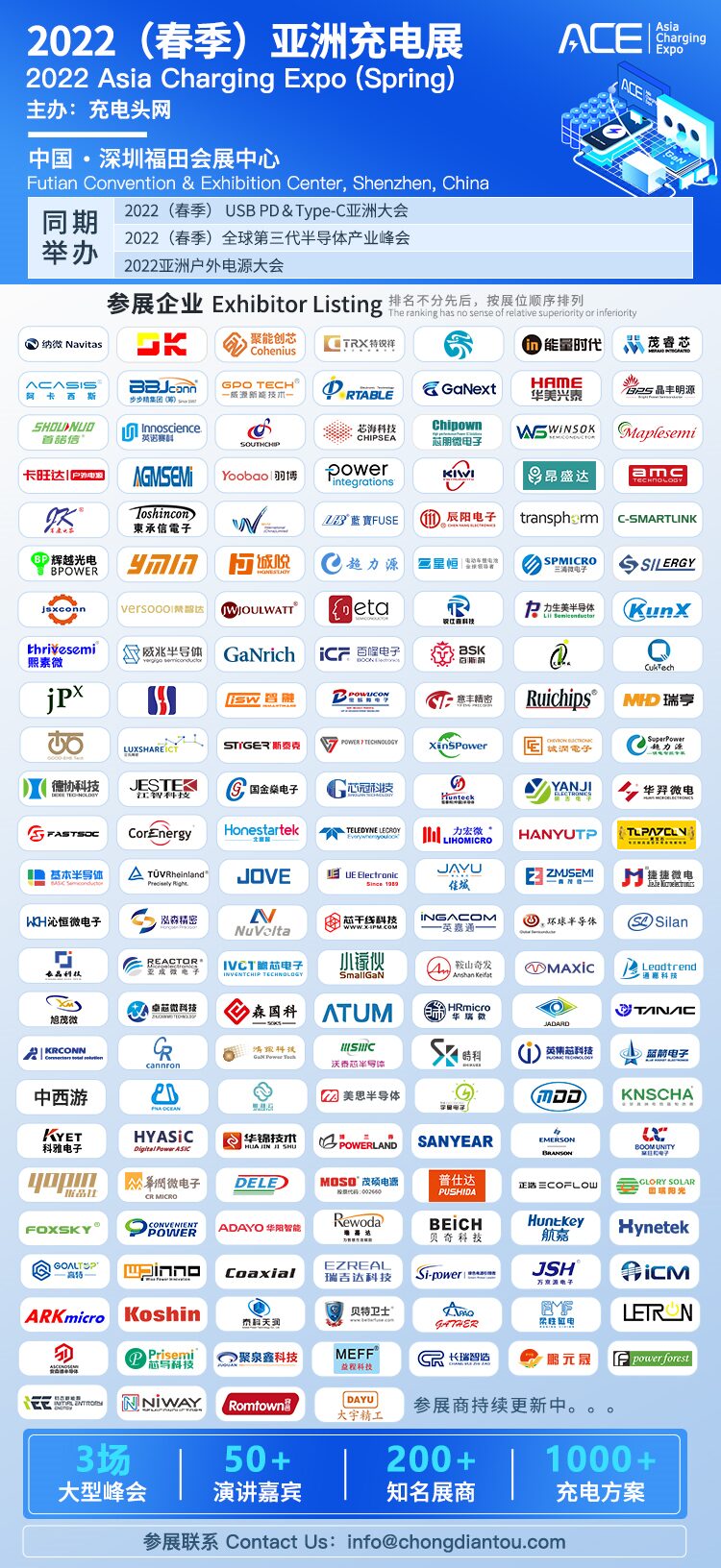

The following popular topics can be clicked to learn more, or you can reply with the following keywords in the **Charging Head Network** WeChat backend to access the topic.
「Power Chips」
Nanxin, Yingjixin, Zhirong, Maoruixin, Biyimi, Meixinsheng, Jiahua Te, Huayuan, Silicon Power, Global, Meisidi, Fuman Yunsil, Yachengwei, Chengxinwei, Qinheng, Xinhai, Tiande Yu, Hengchengwei, Beilande, Fuda, Weiyuan, Ruixinwei, Lishengmei, Chuangxinwei
「Passive Components」
Yongming, Keni Sheng, Zhiyu Electronics, Teruixiang, Beite, World
「Gallium Nitride」
Namiwei, Yingnuosai, Juneng Chuangxin, Nenghua, Weizhao, Gallium Future, Weisuo
「Connectors」
Chao Xun
「Fast Charging Factories」
Hangjia, Gushi, Huake Sheng, Pengyuansheng, Ruijiada, Tianbao, Tianzhong Precision Machinery, Xinxian Solution
「Brand Zone」
Apple, Huawei, Gongniu, Mophie, Ugreen, Hangjia, Beisi, TRüKE Charging Guest, Jile Tang, Patriot, Moqi
Business cooperation contact: [email protected]
